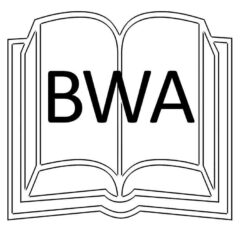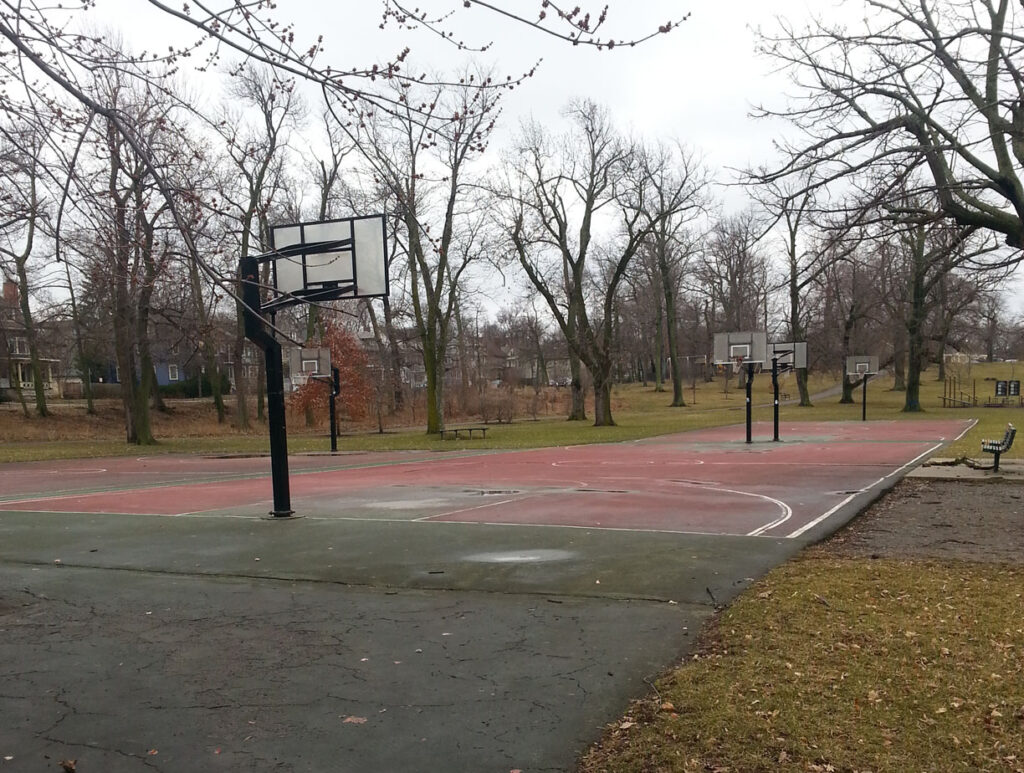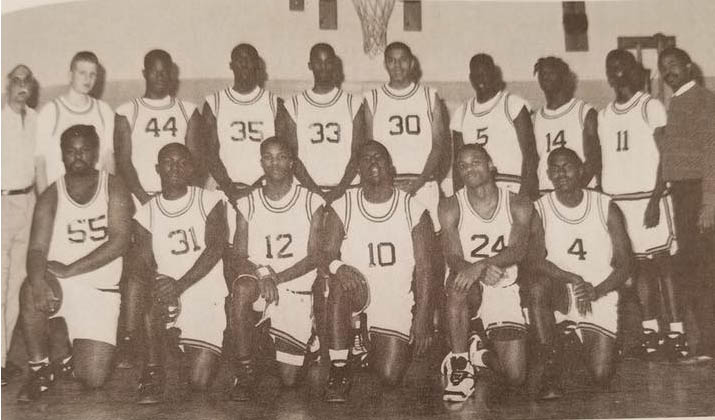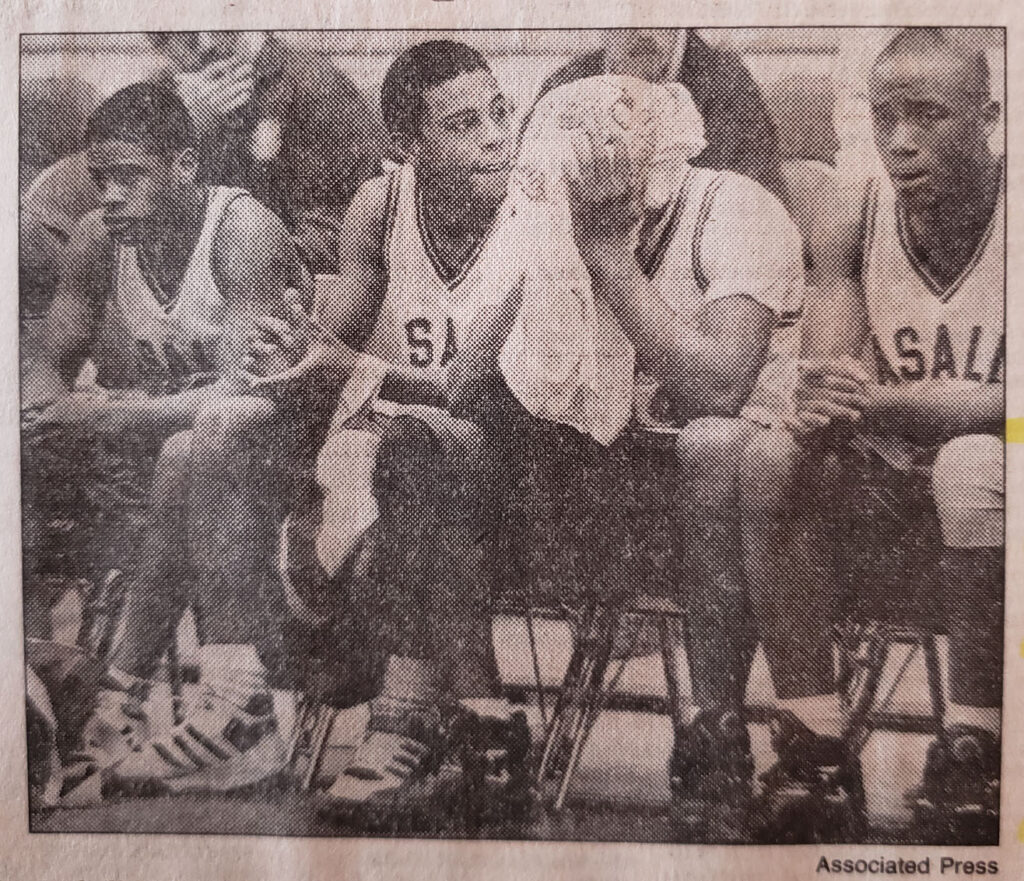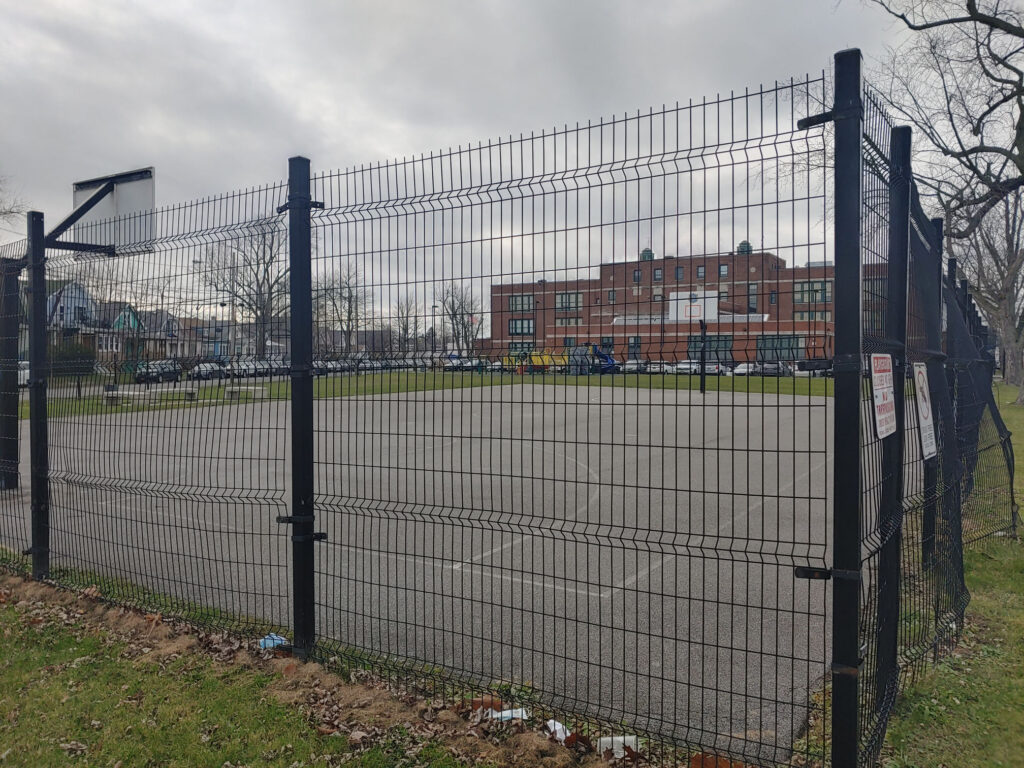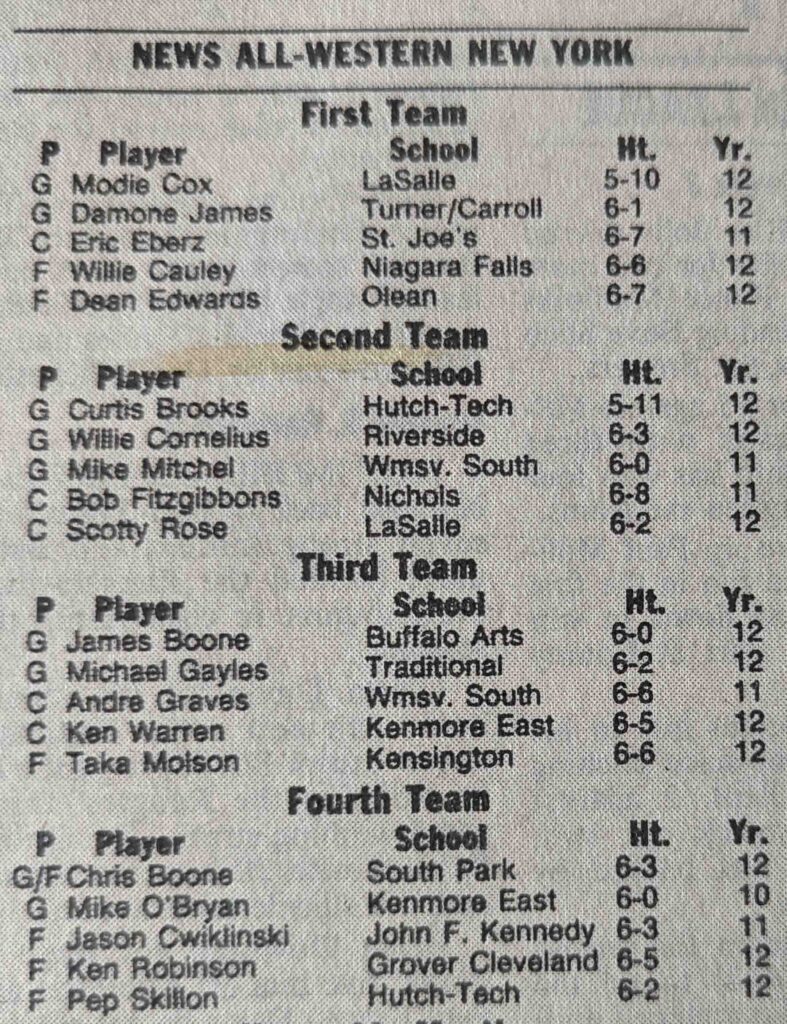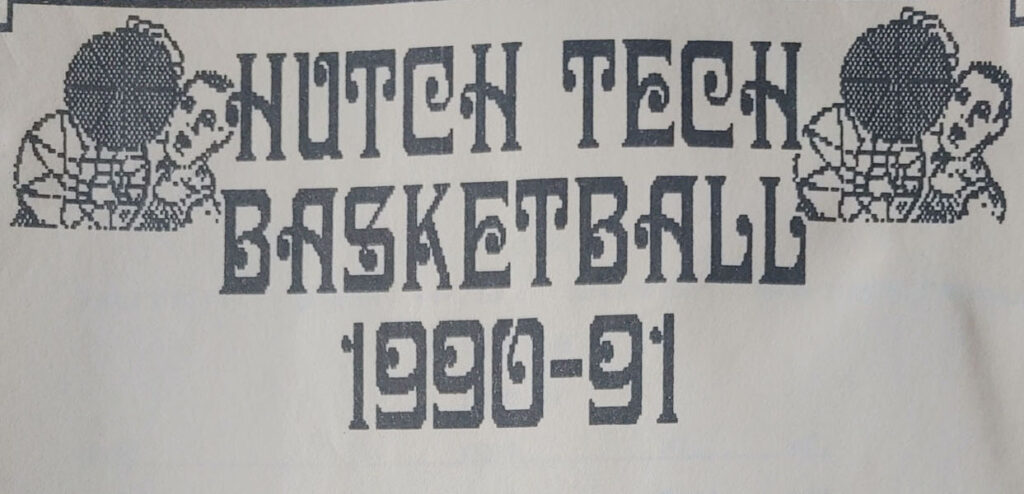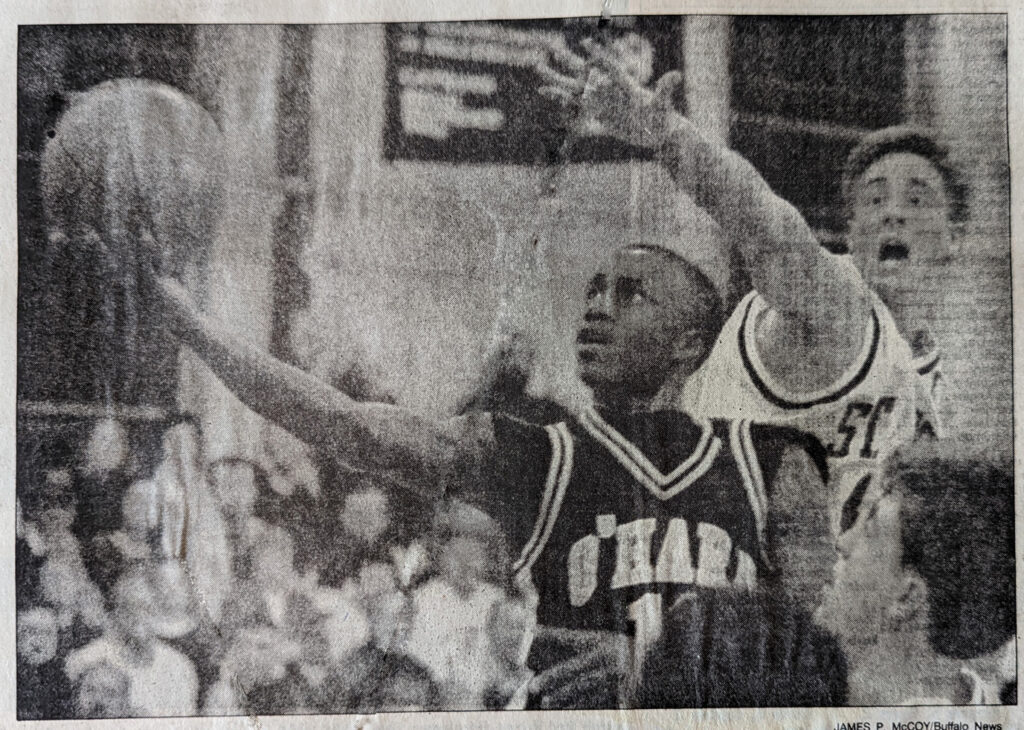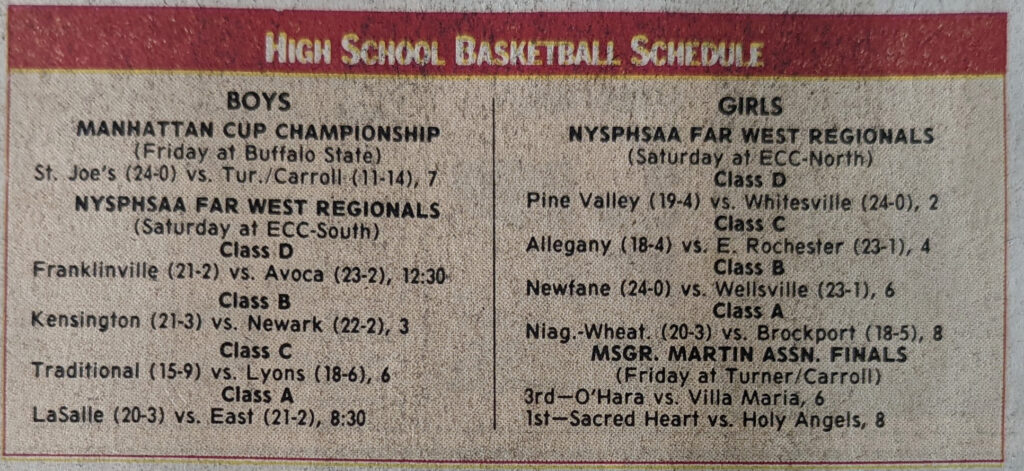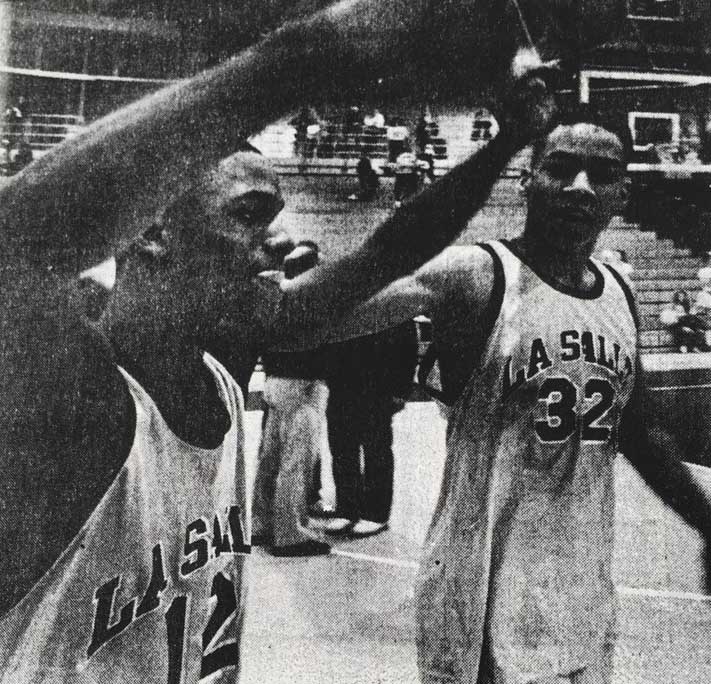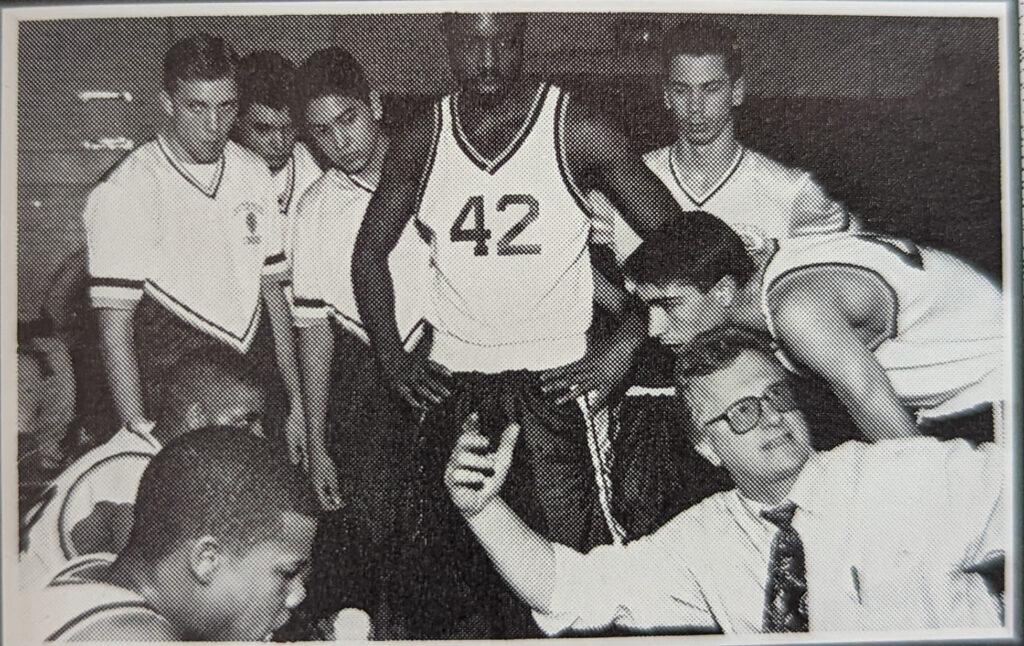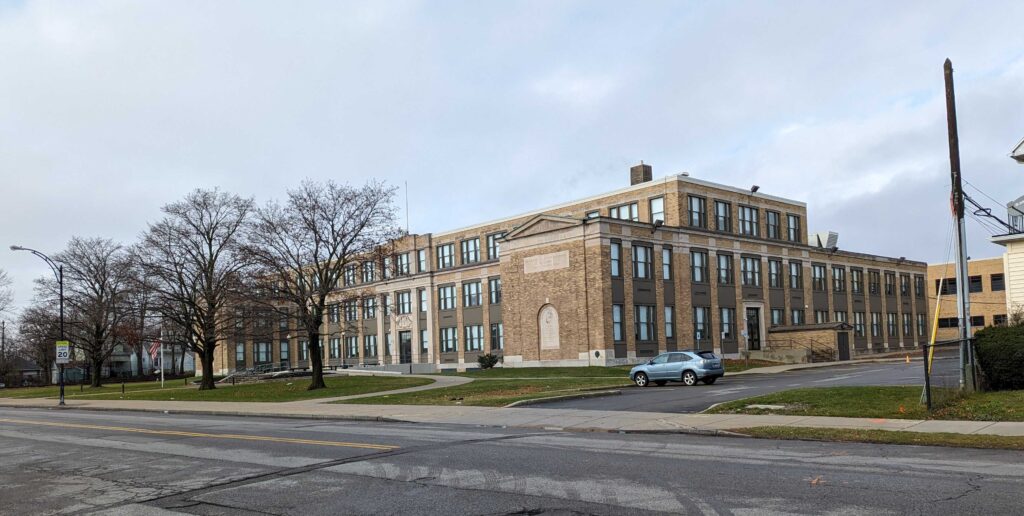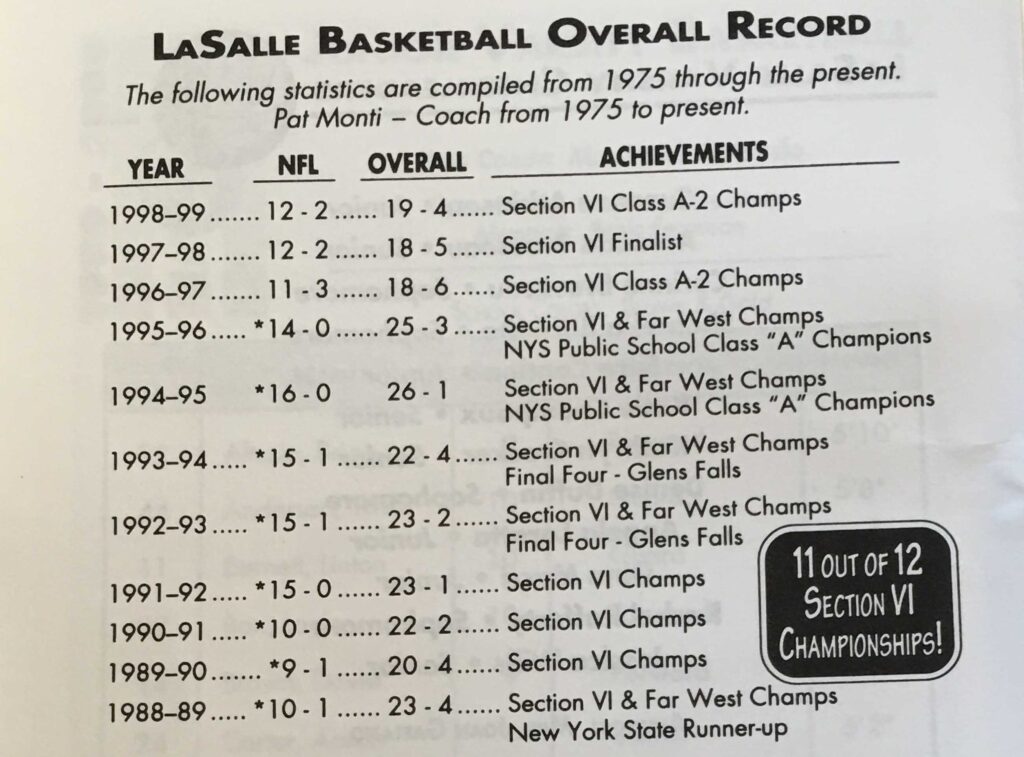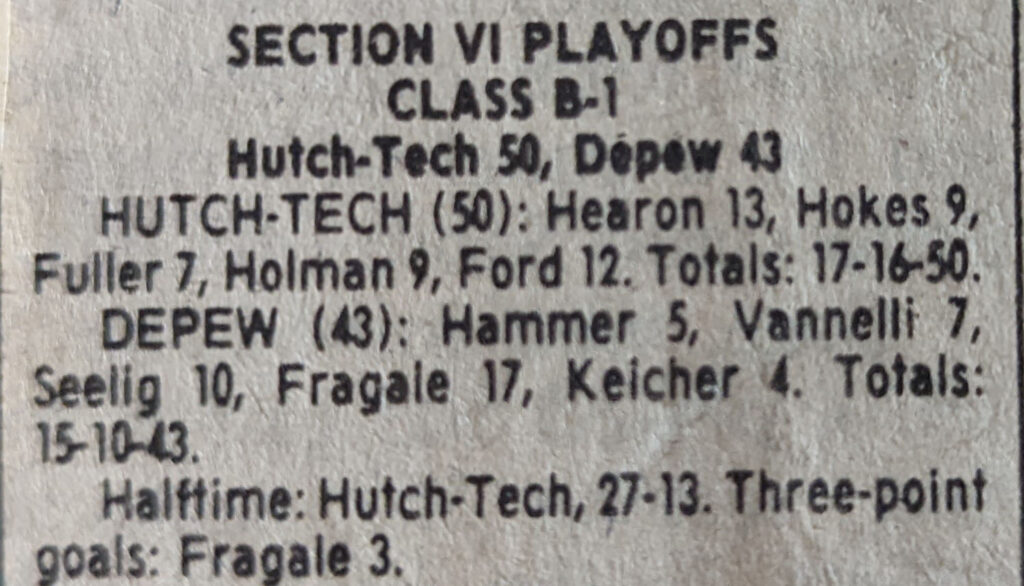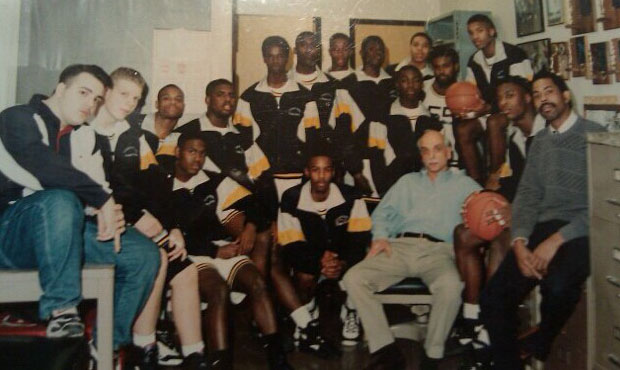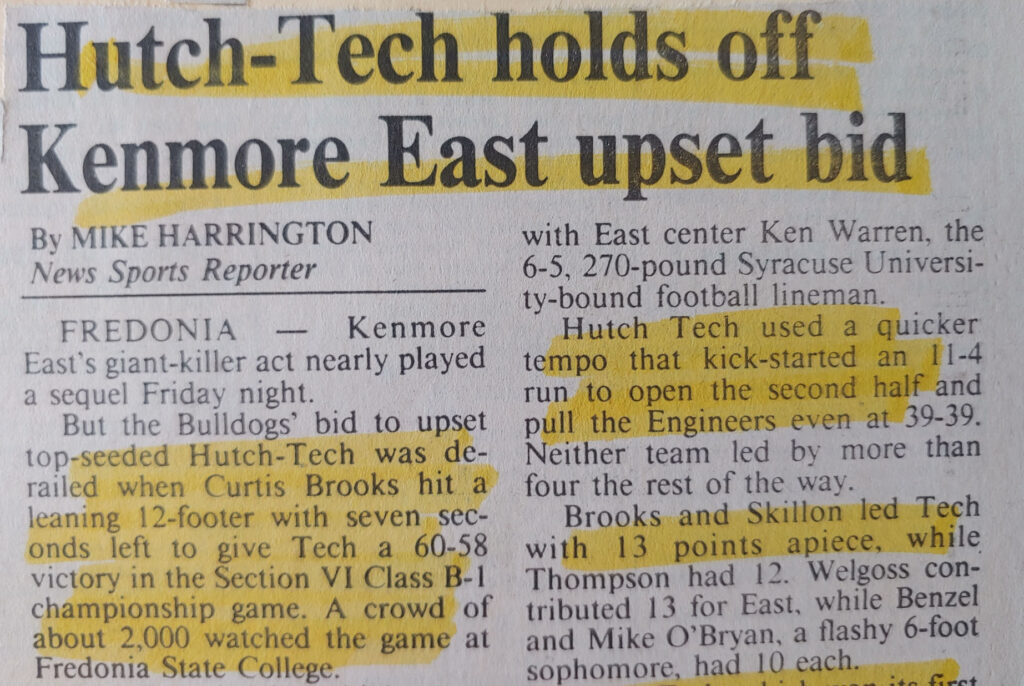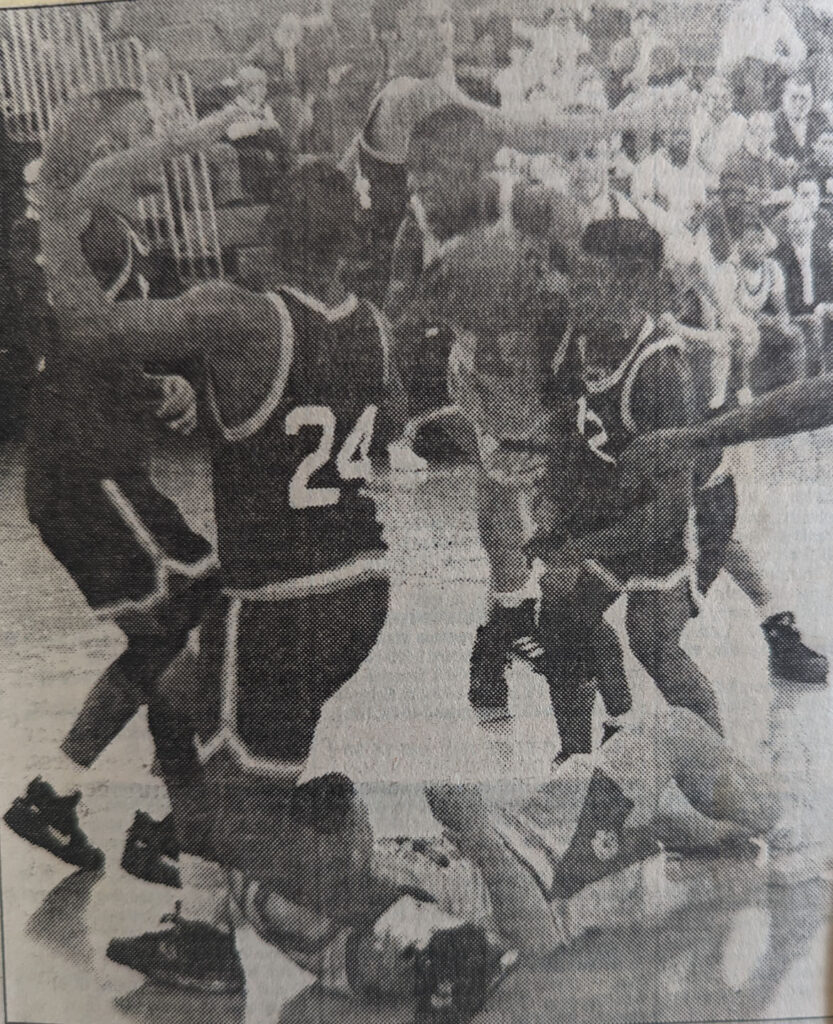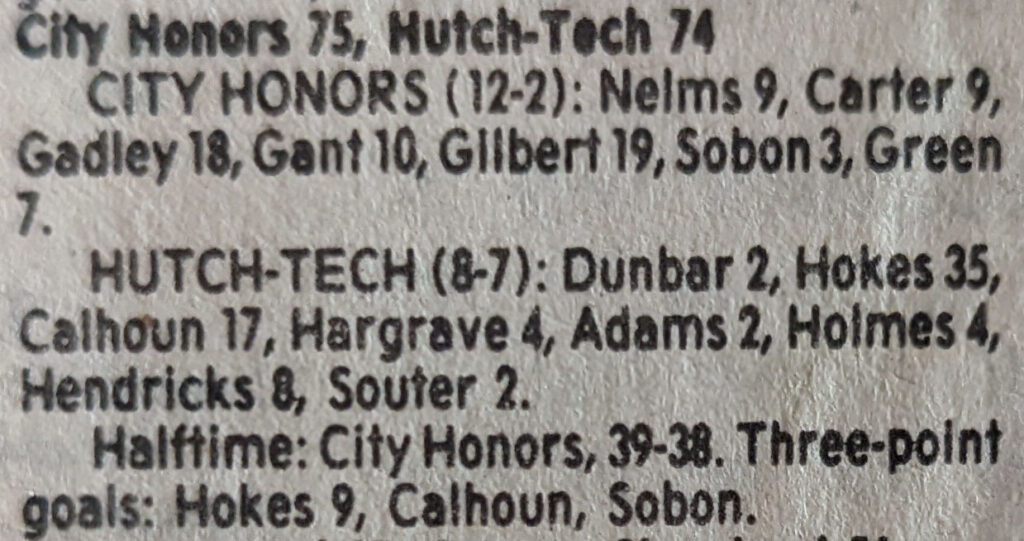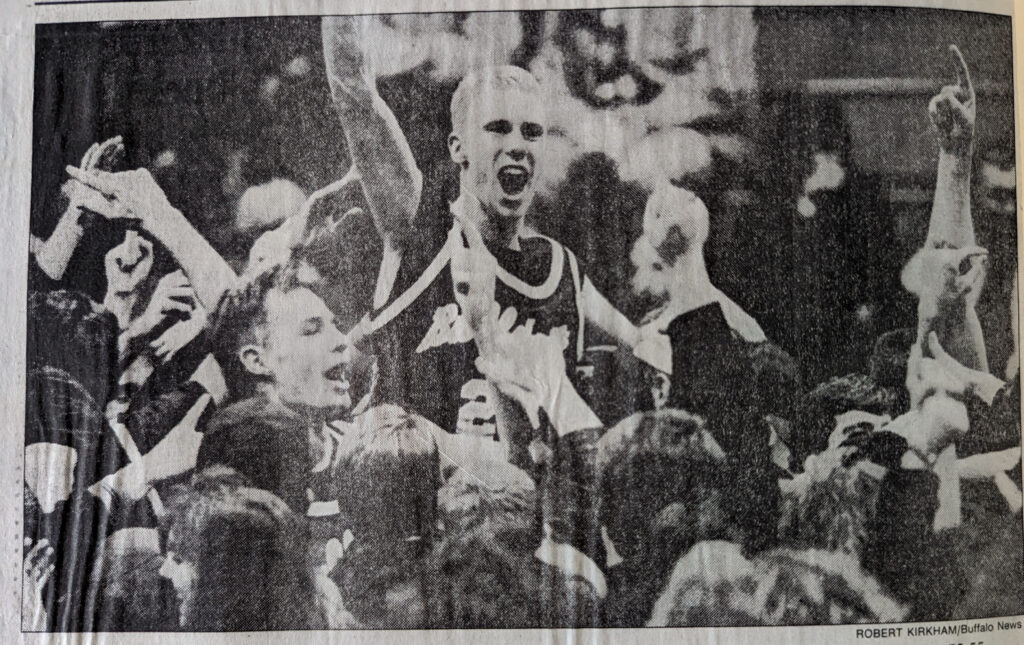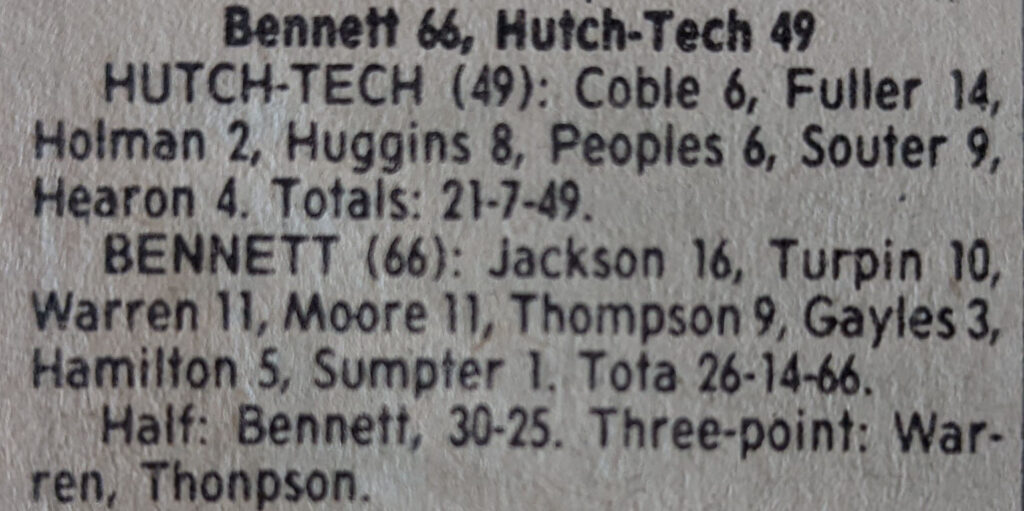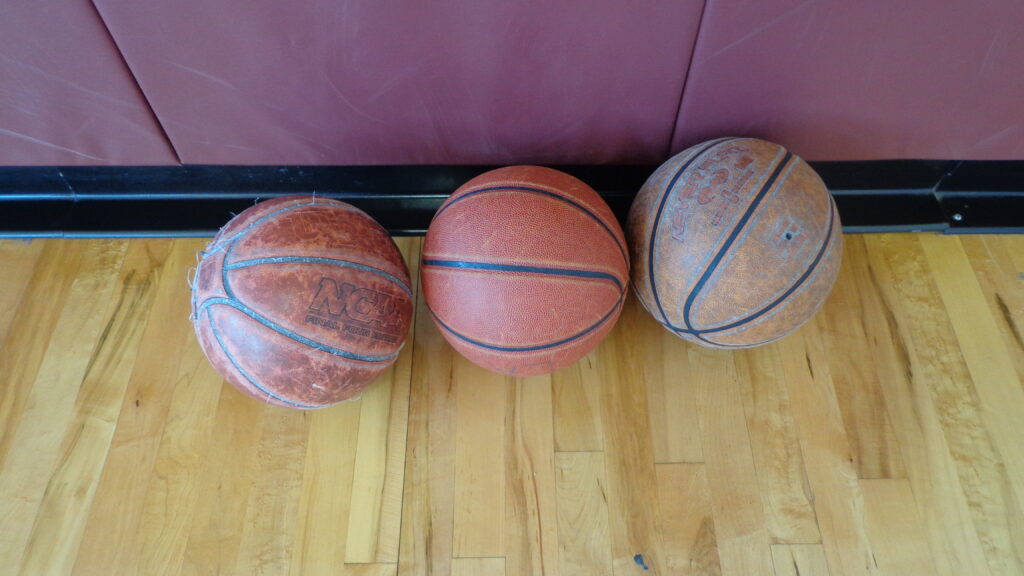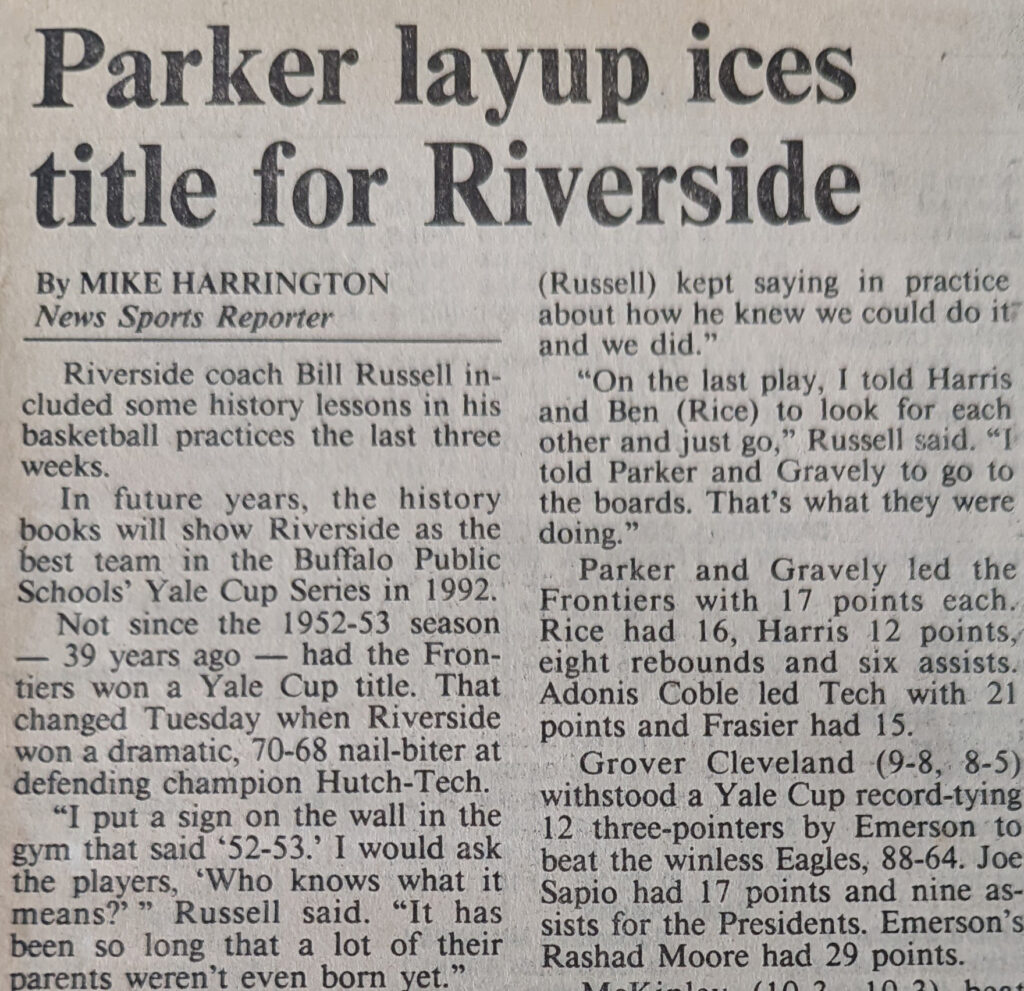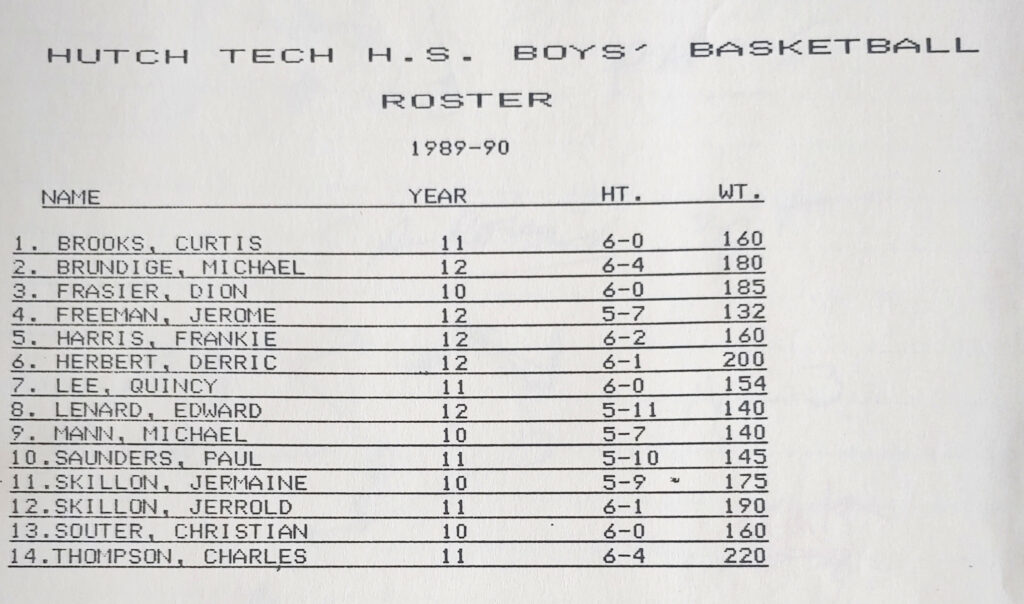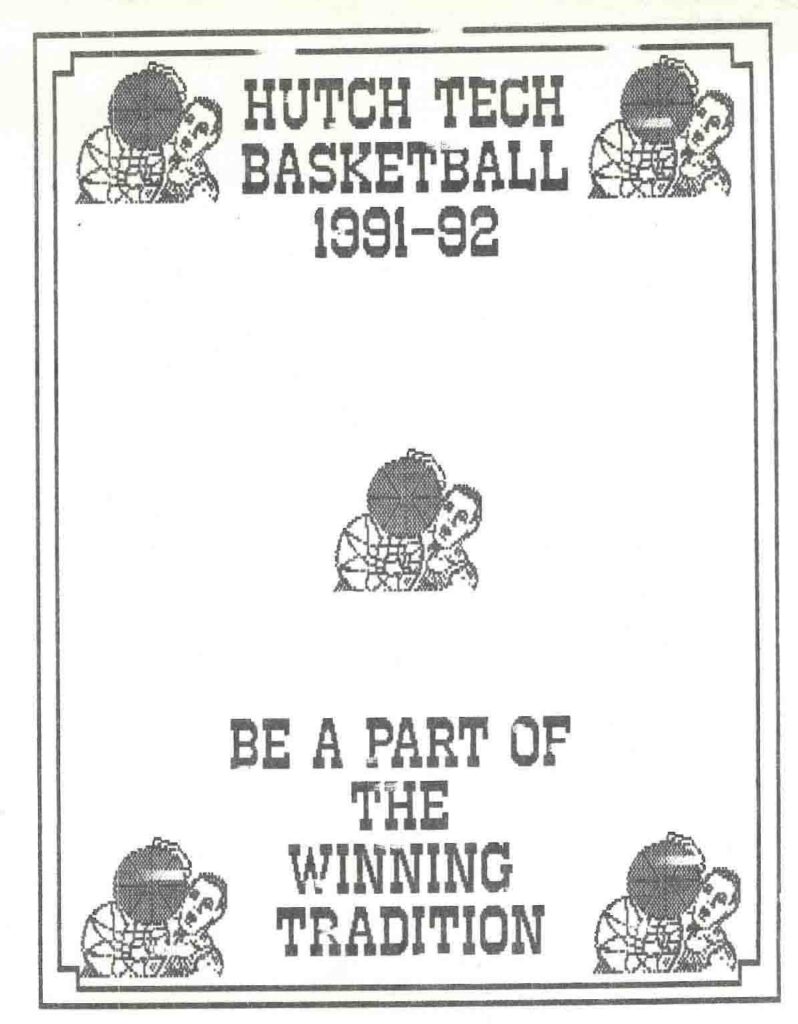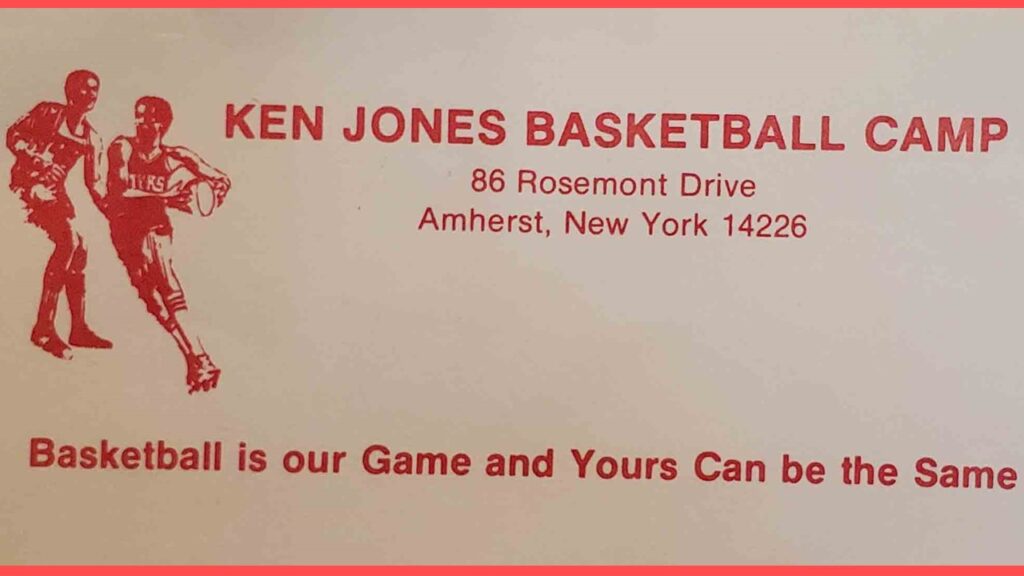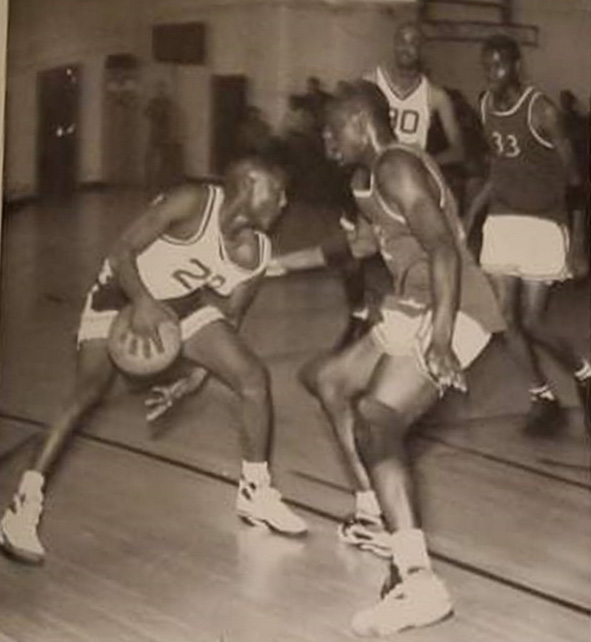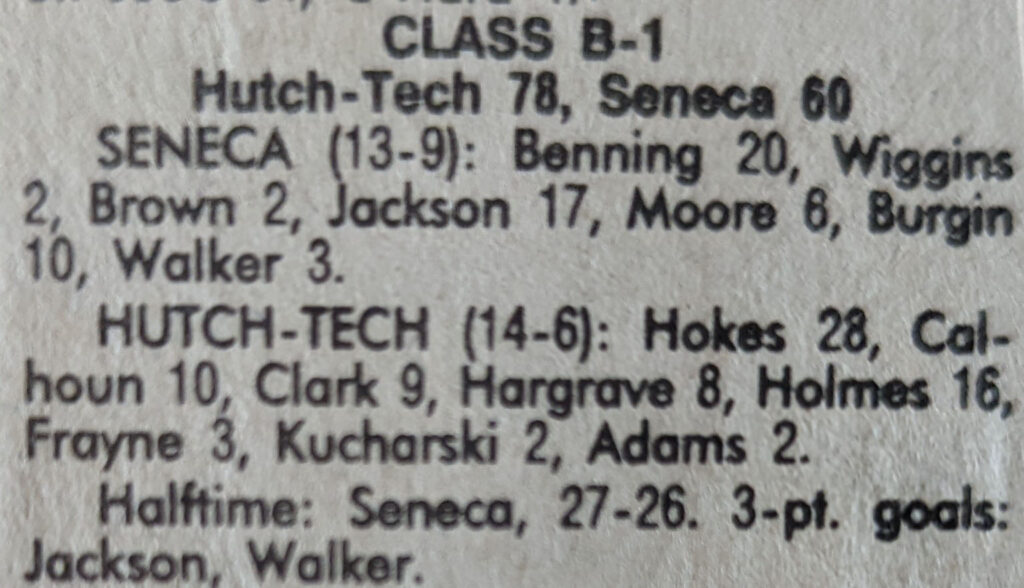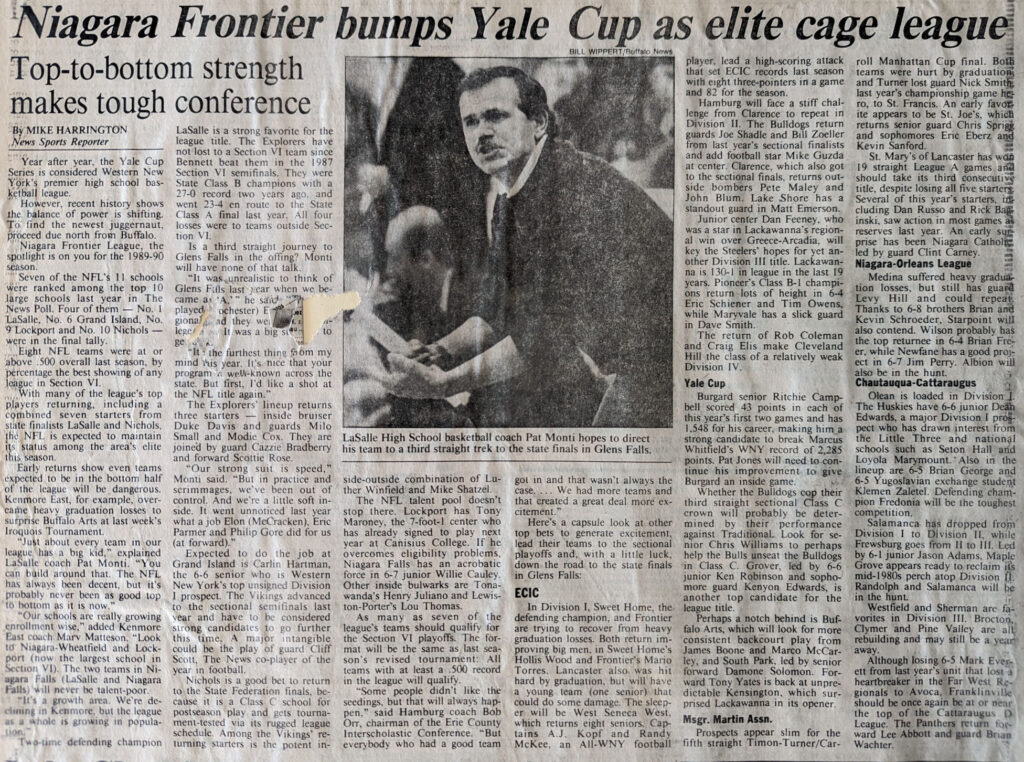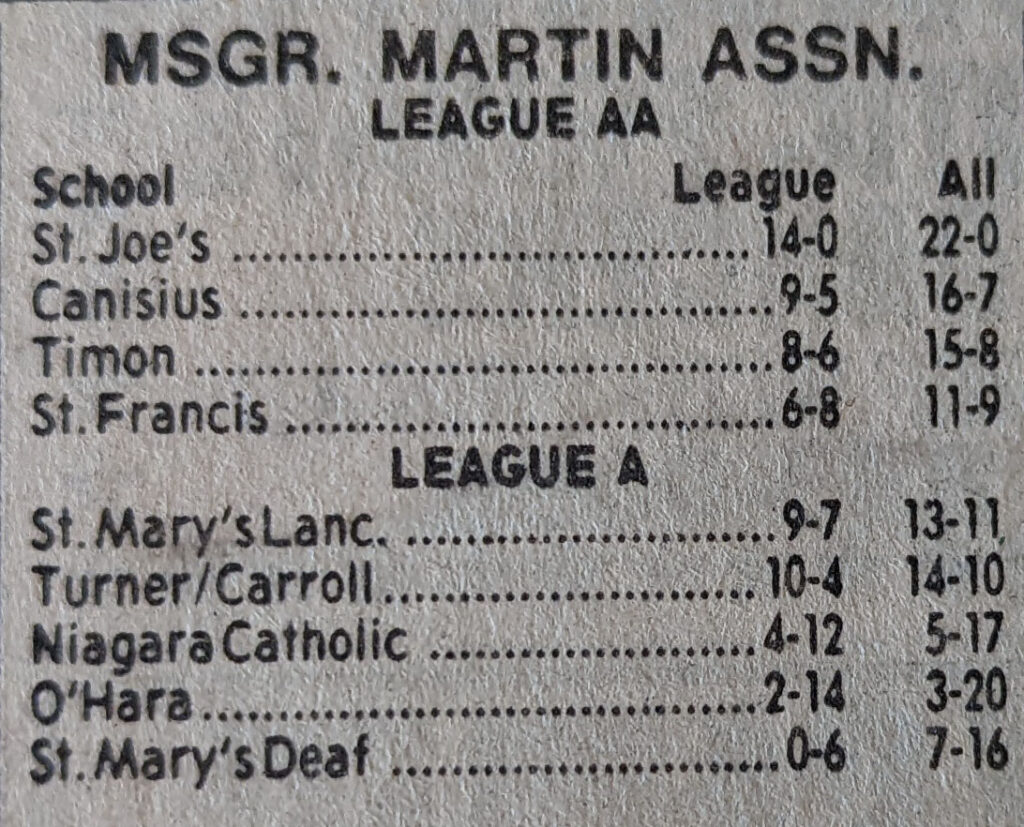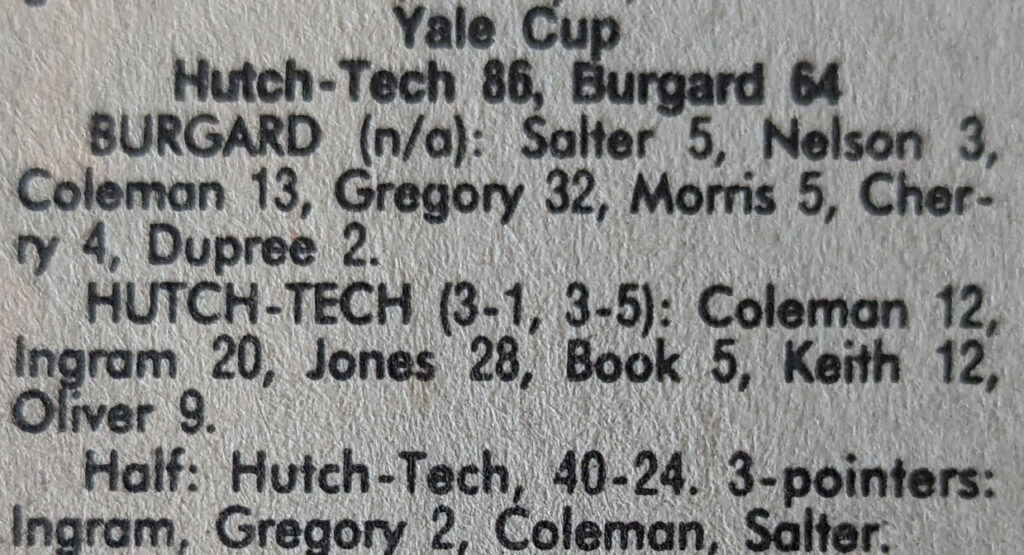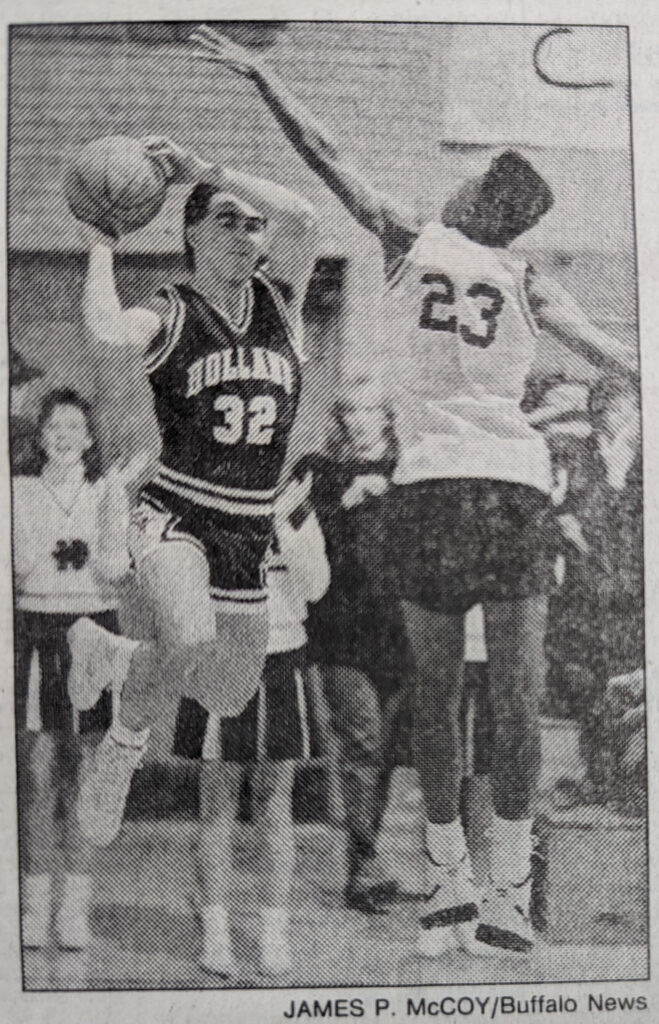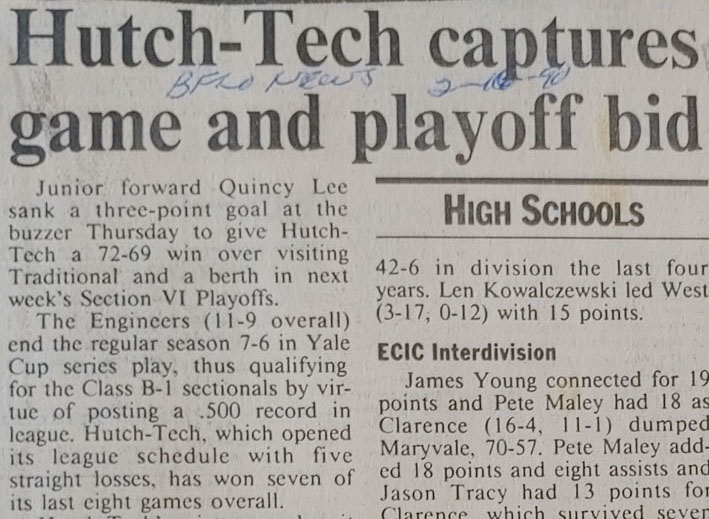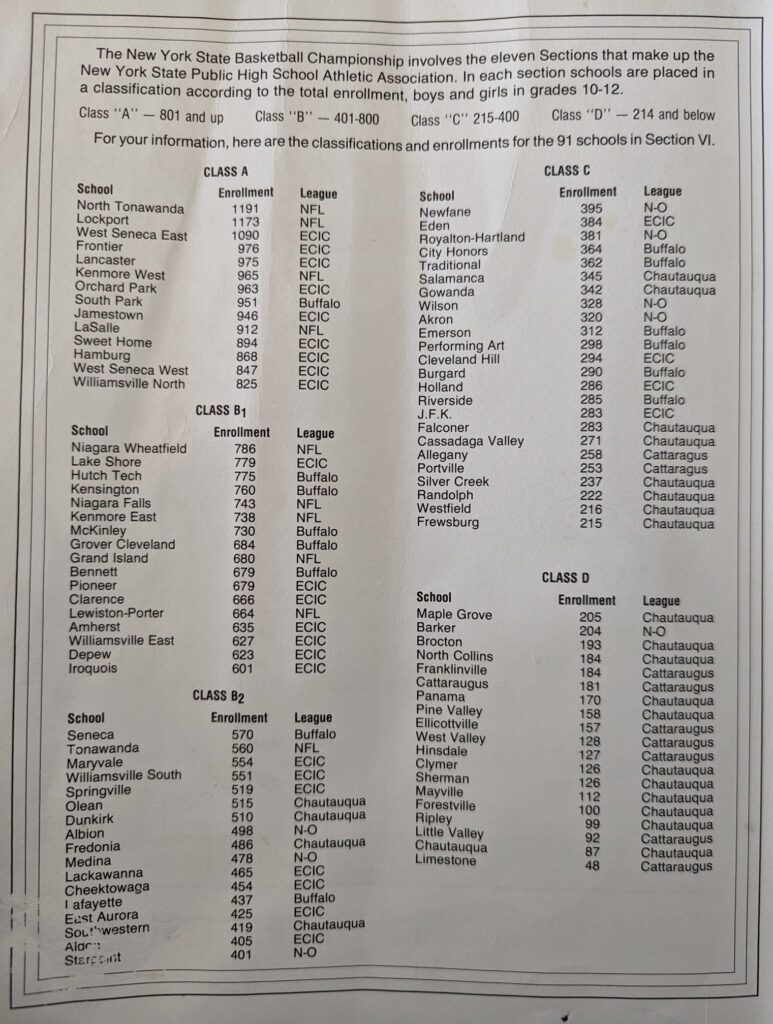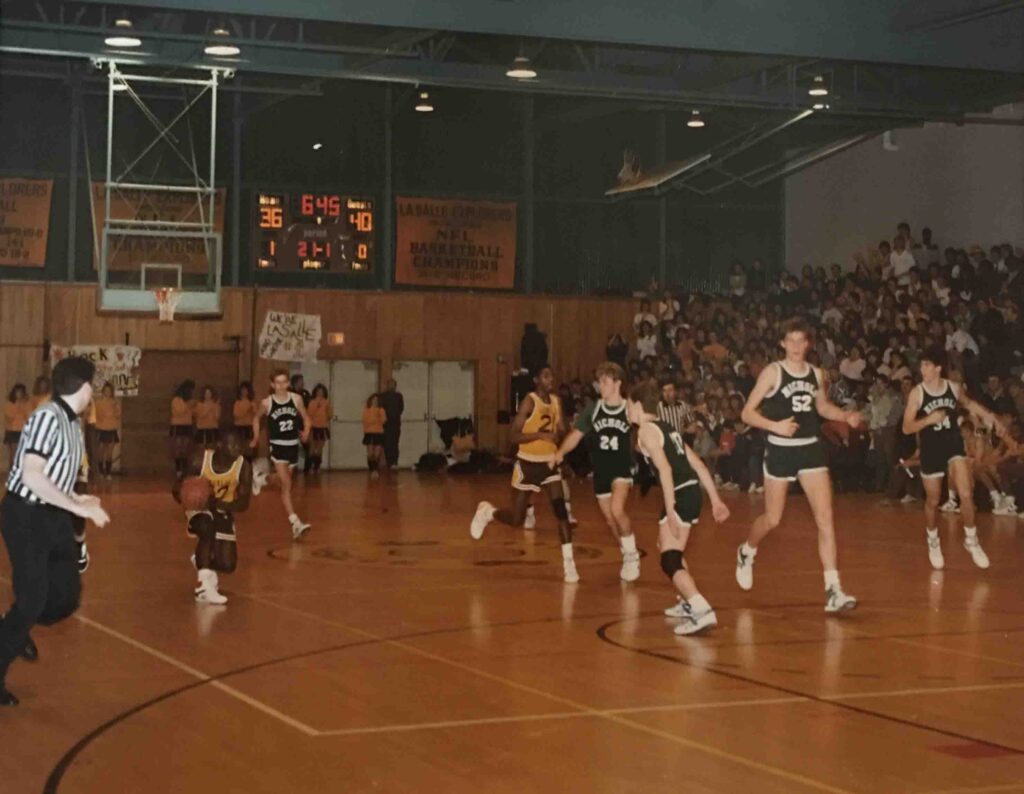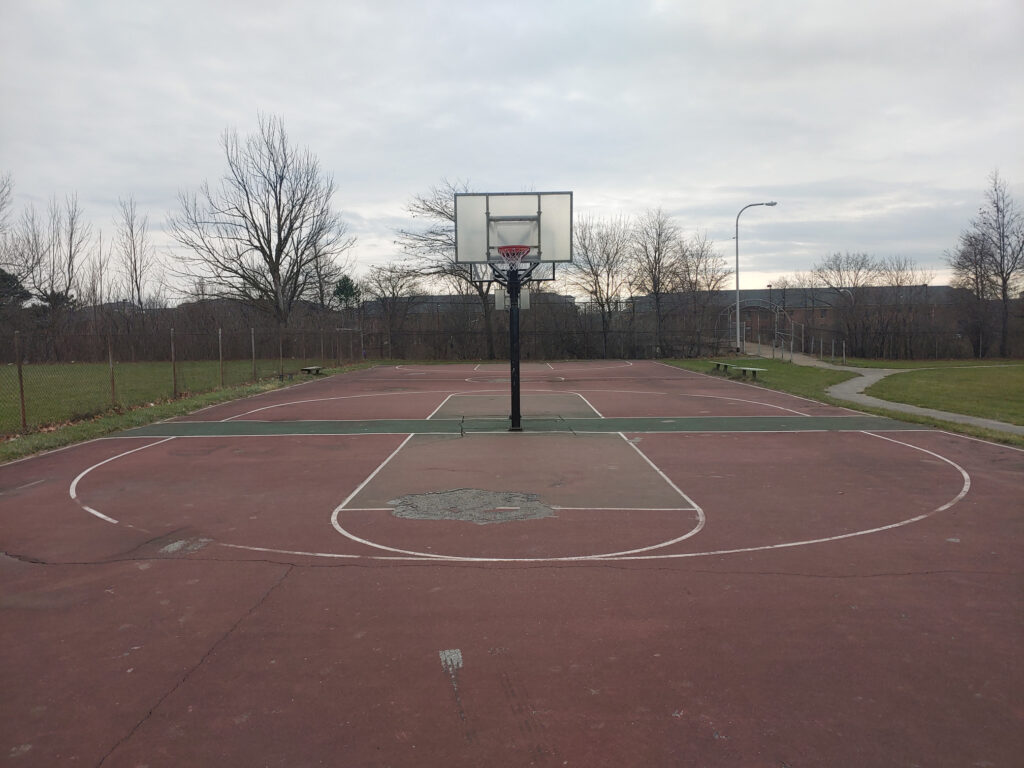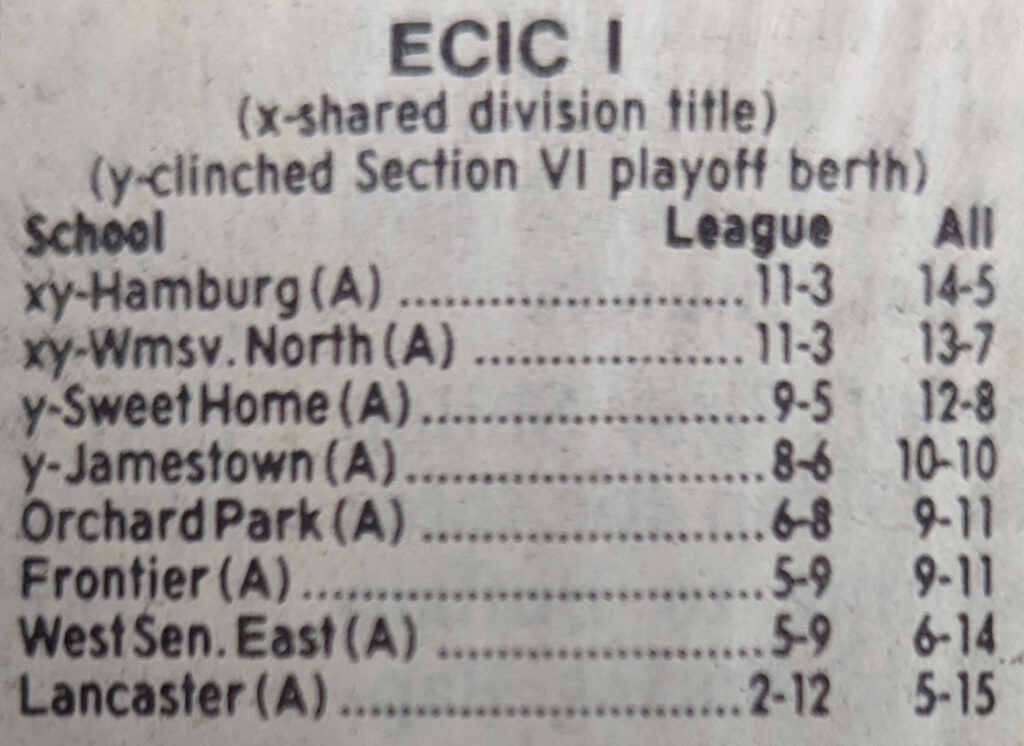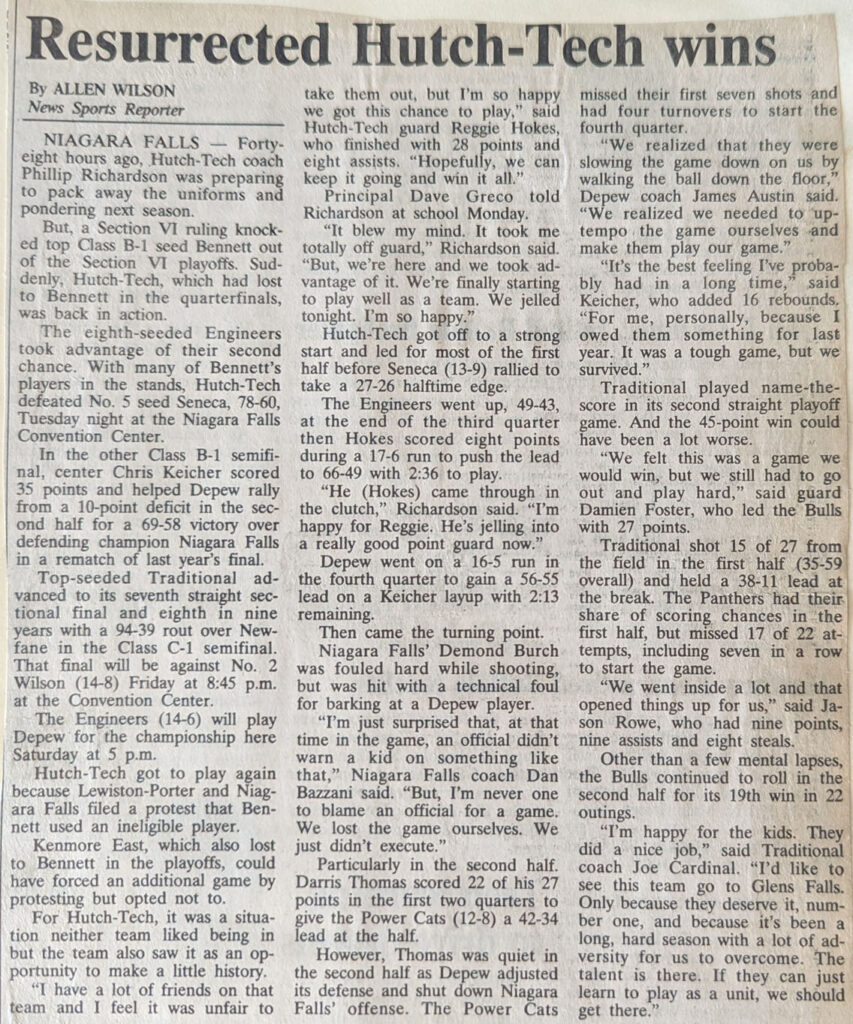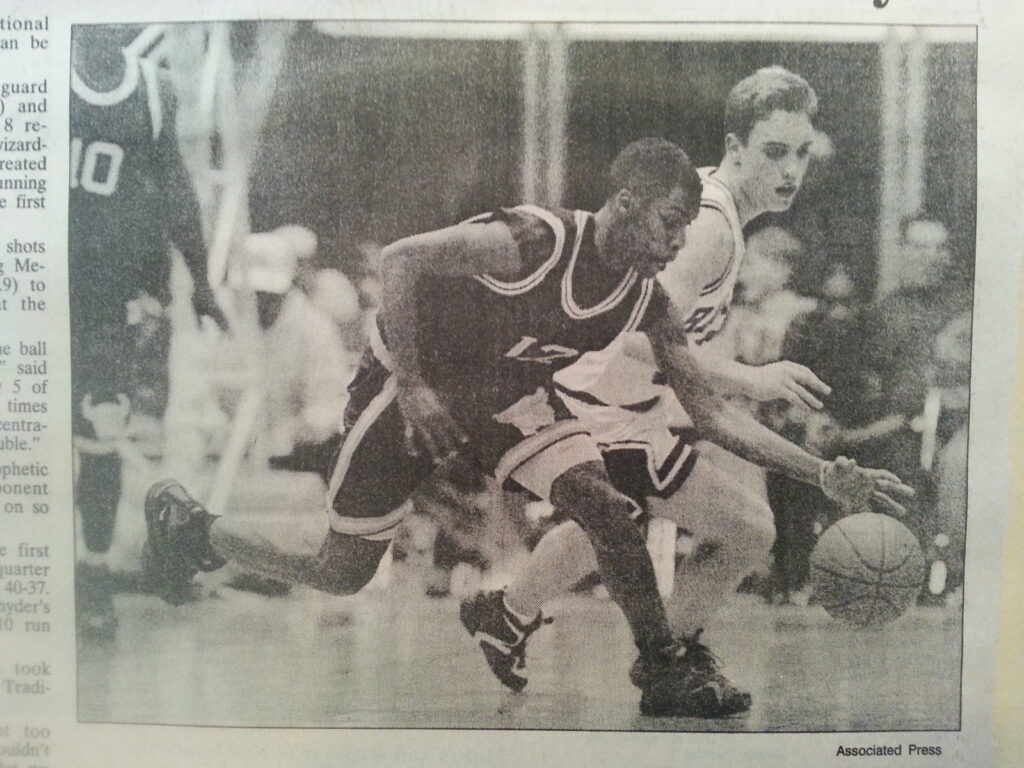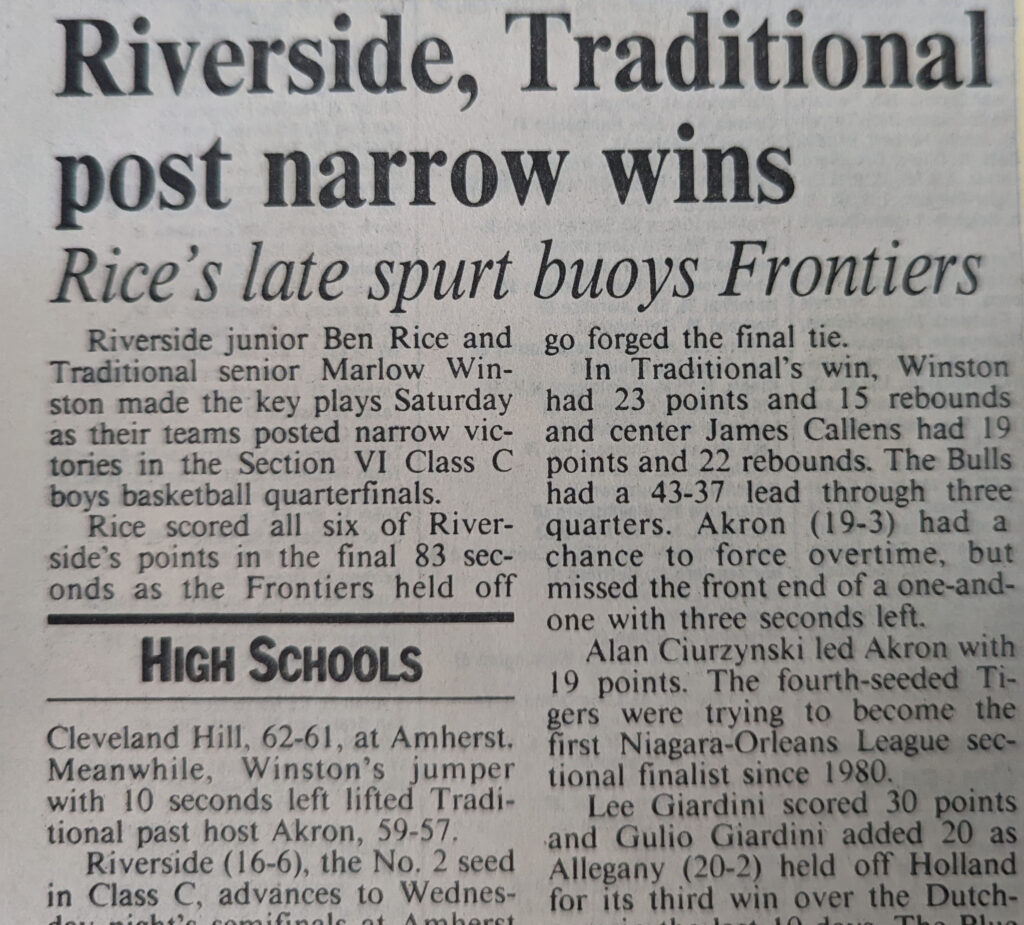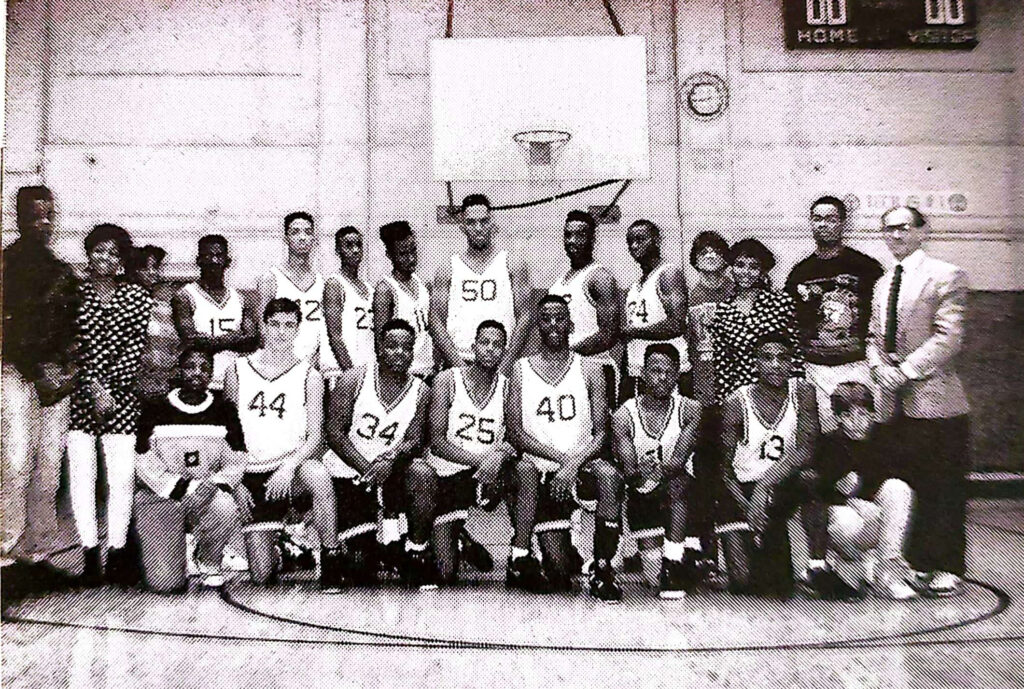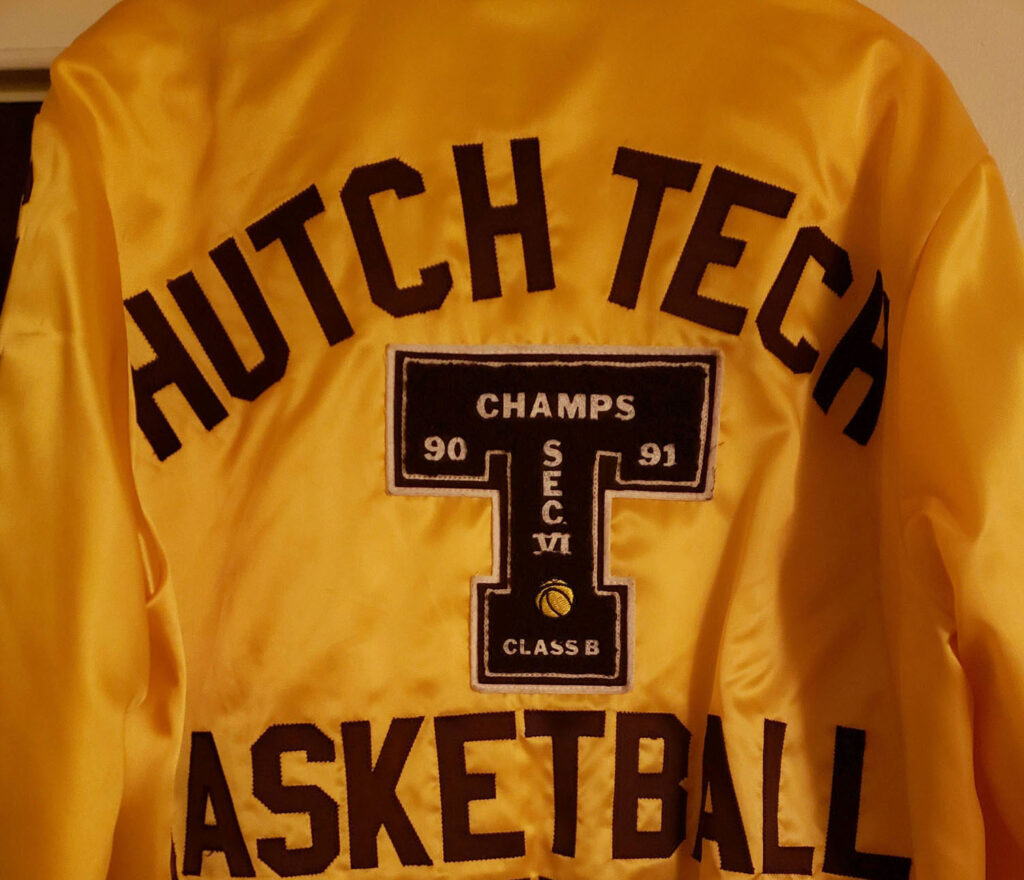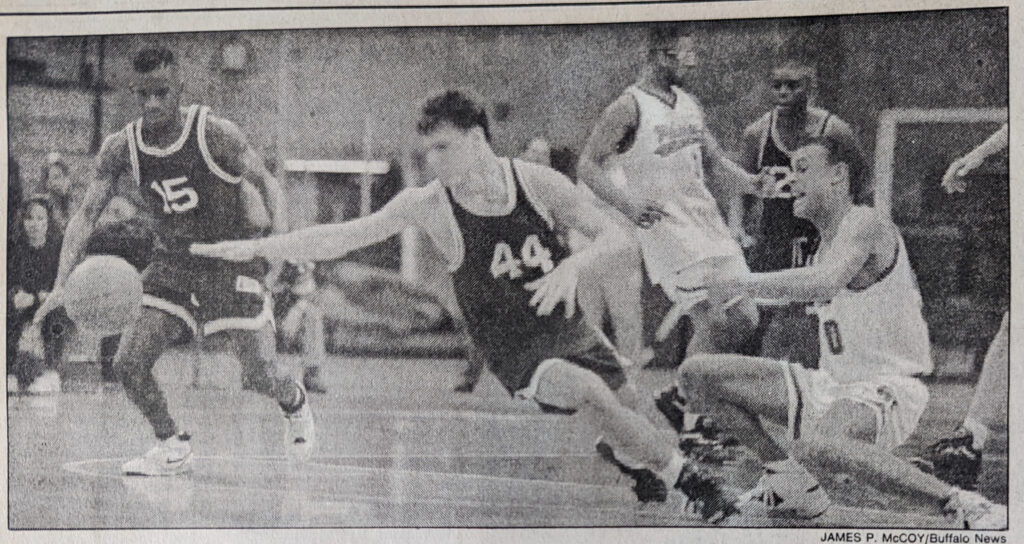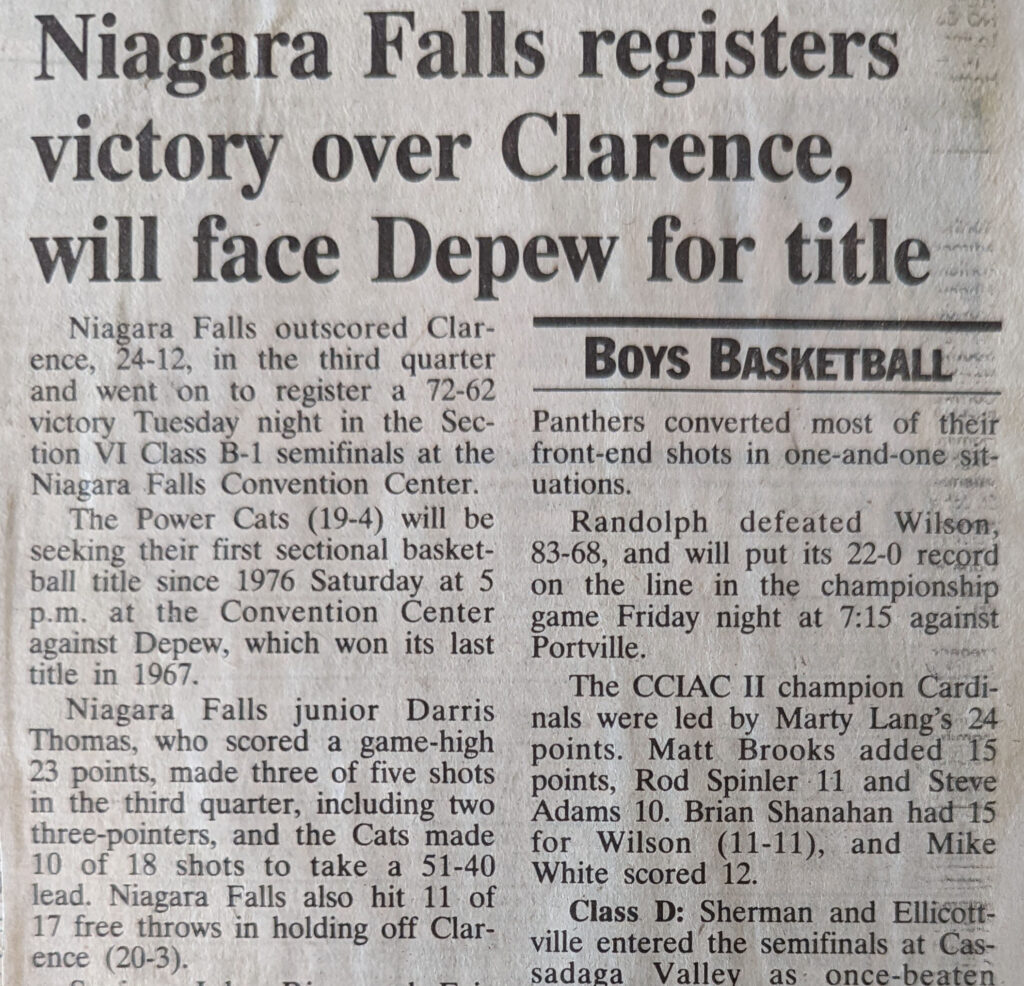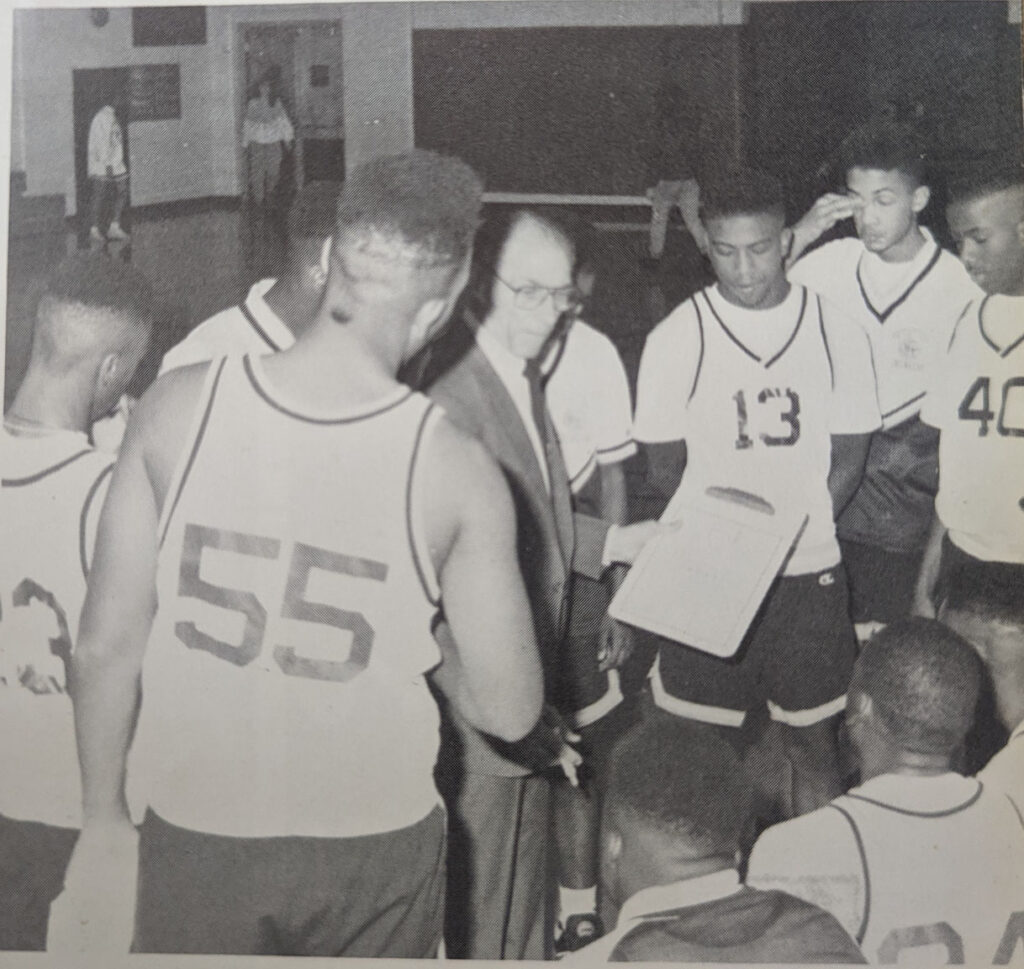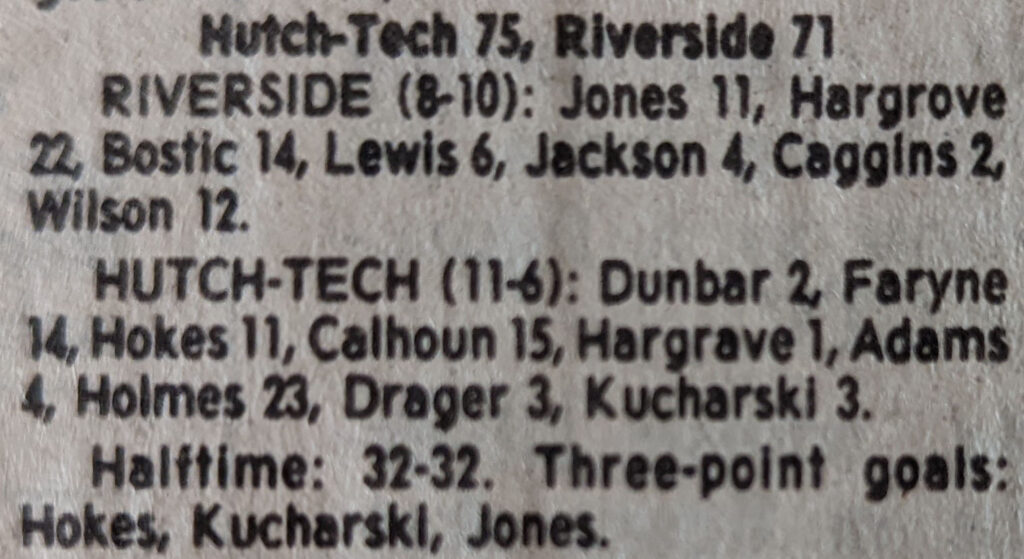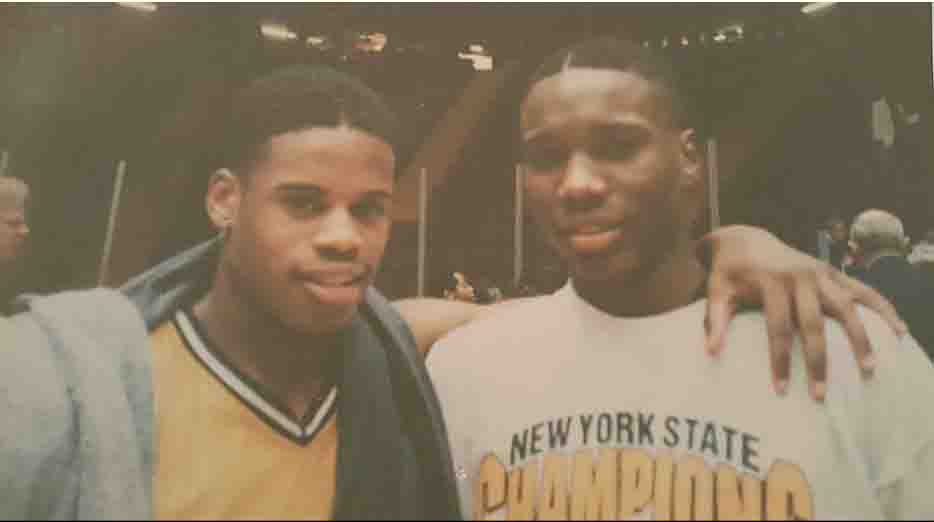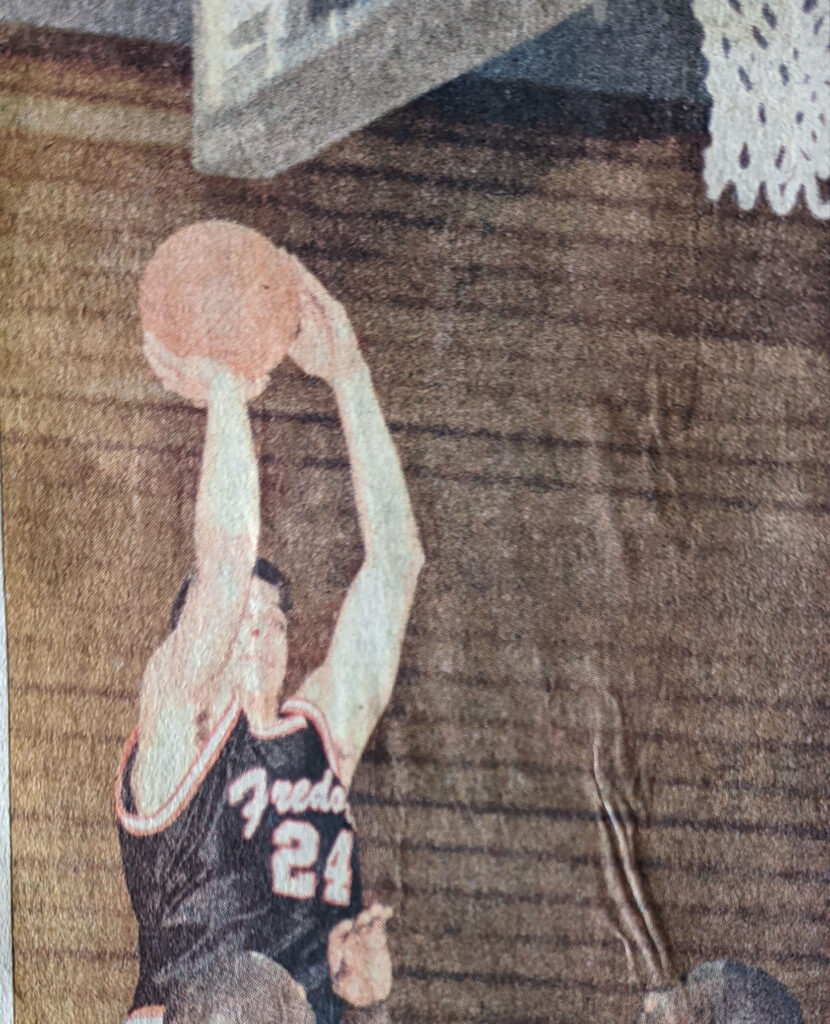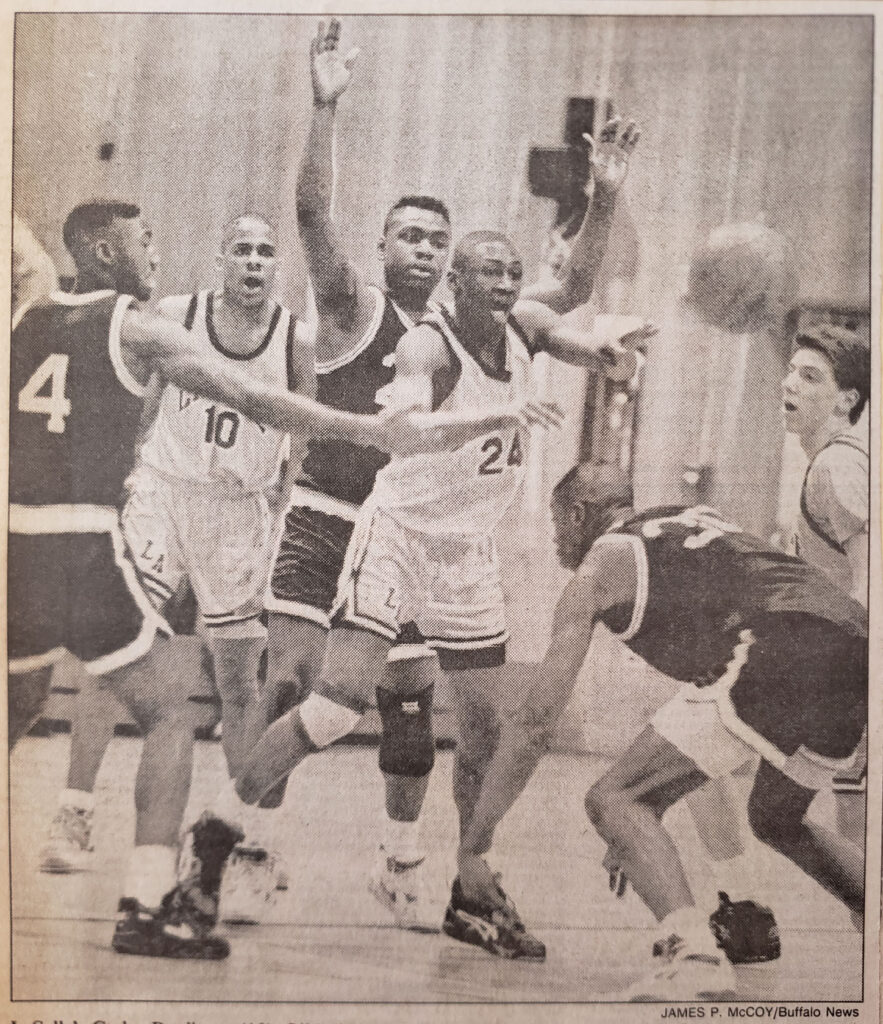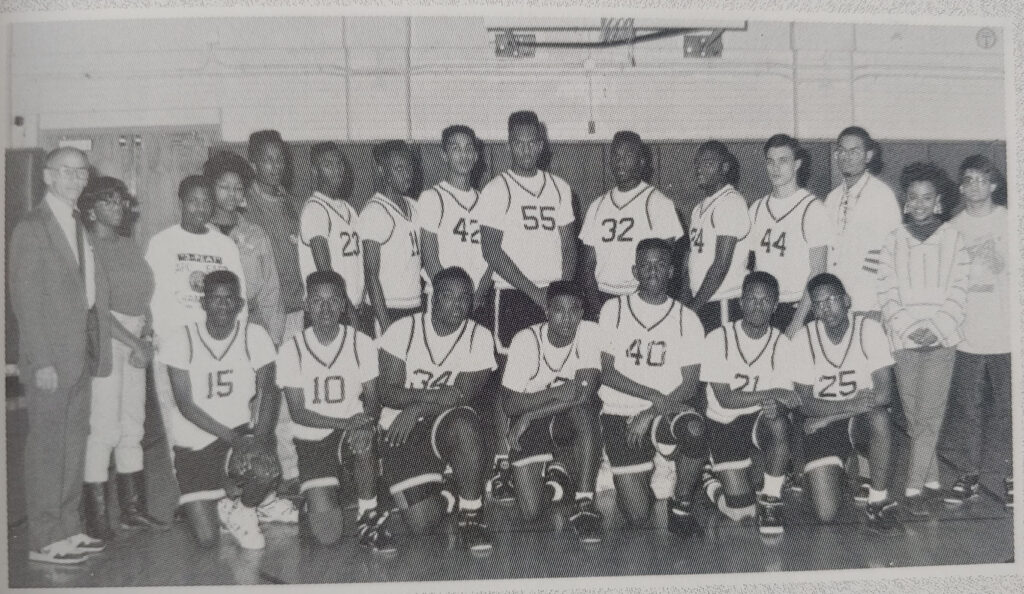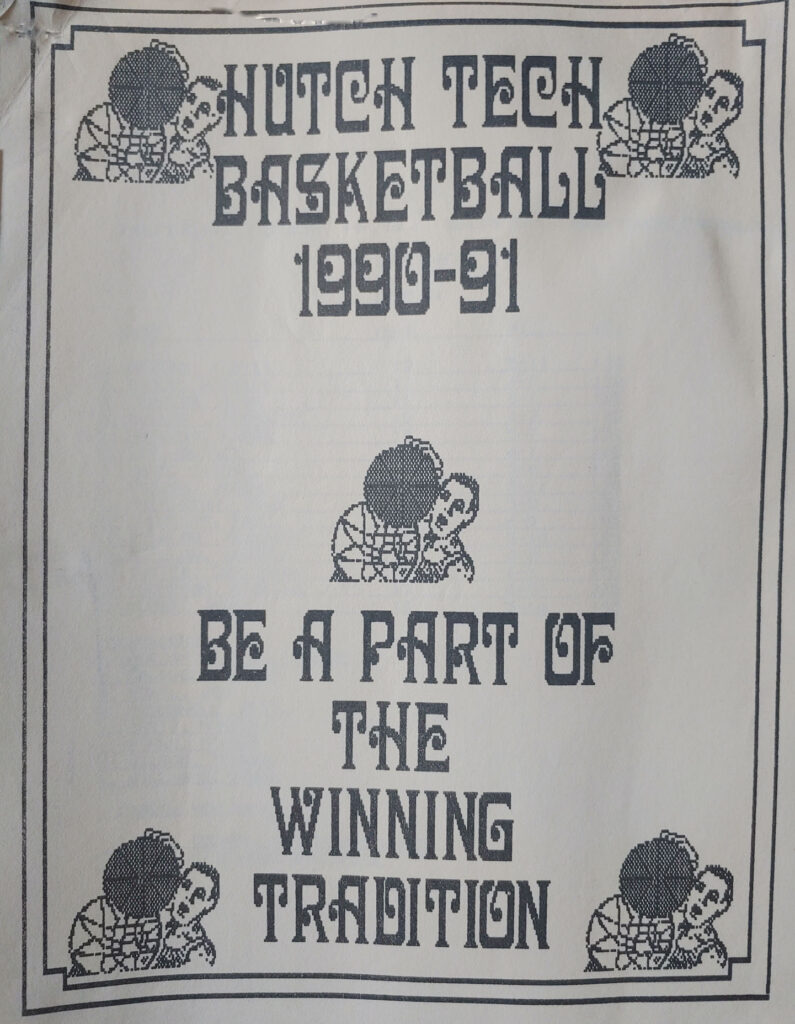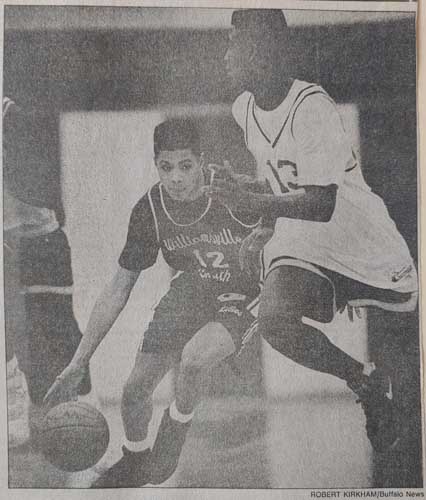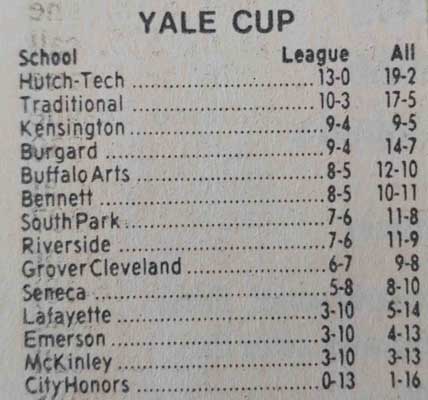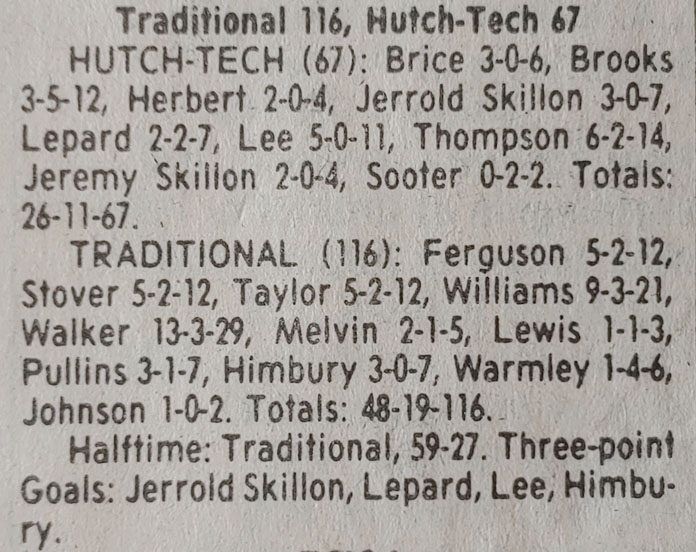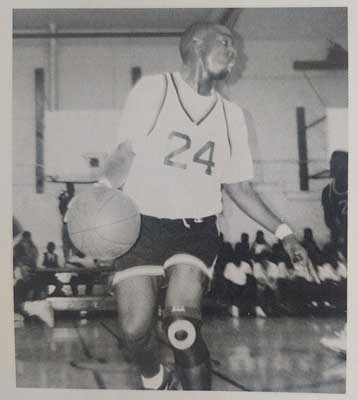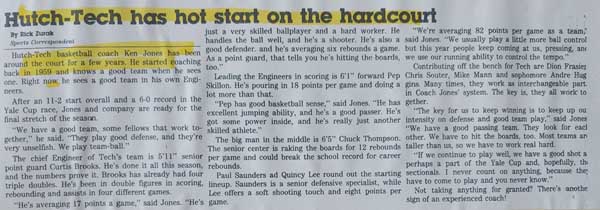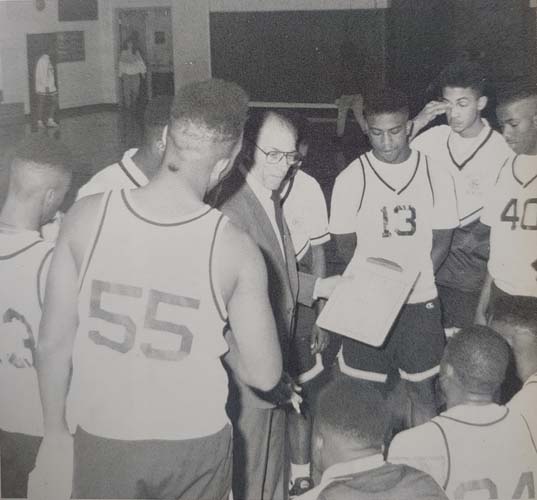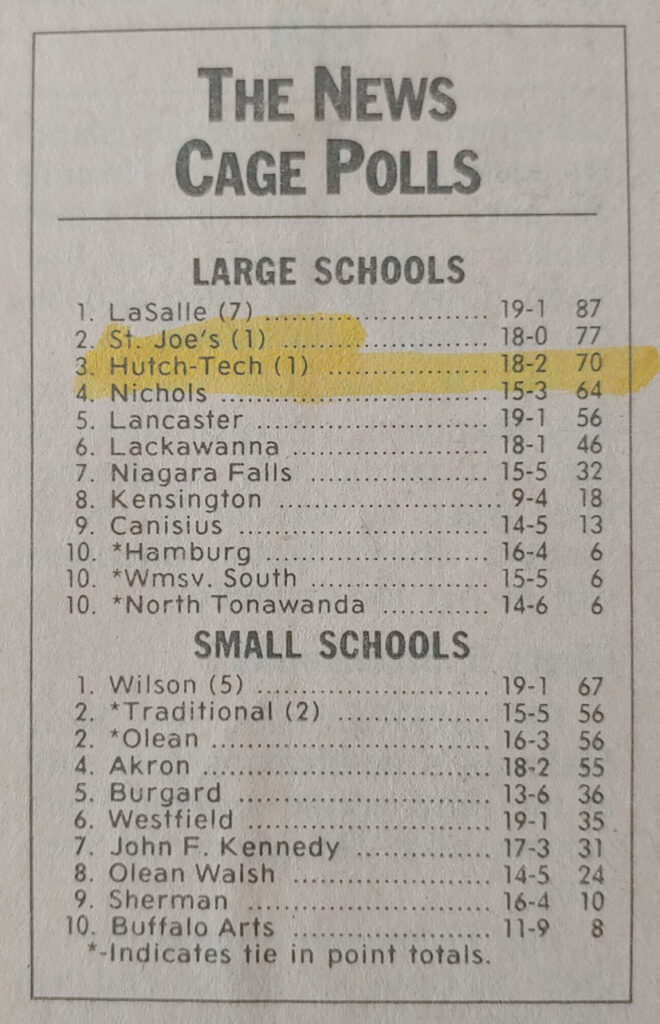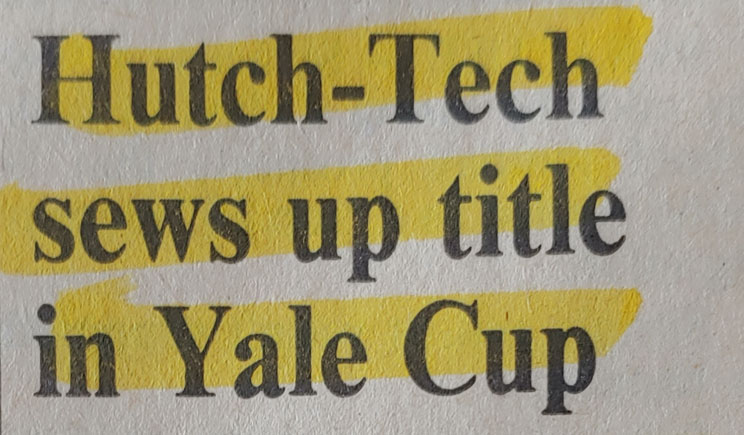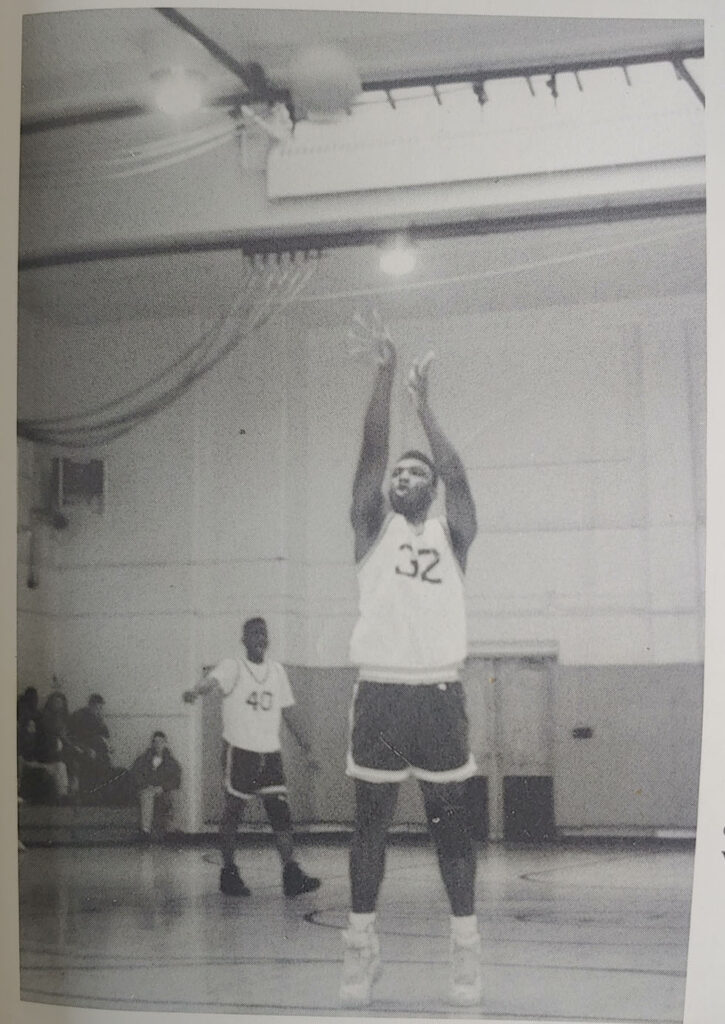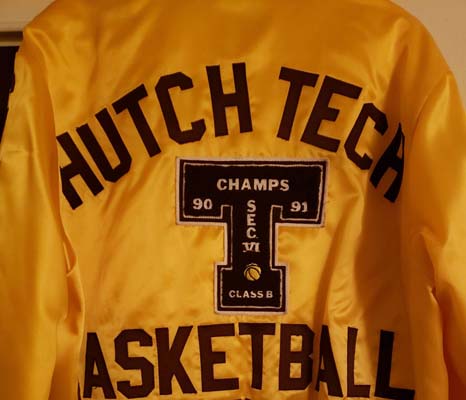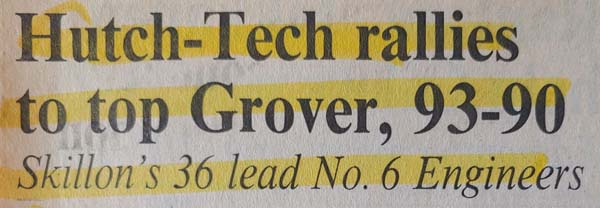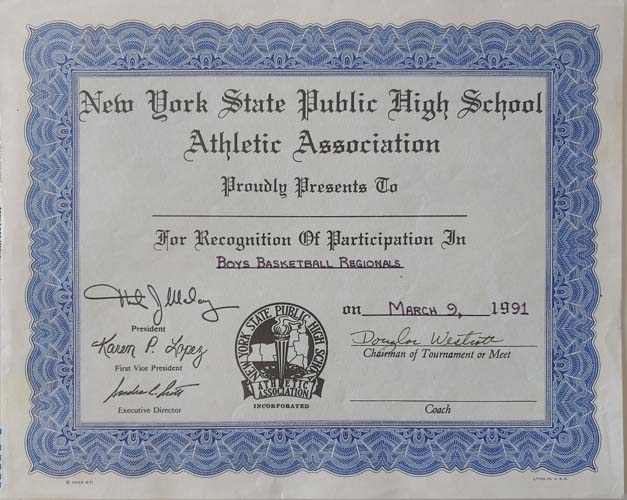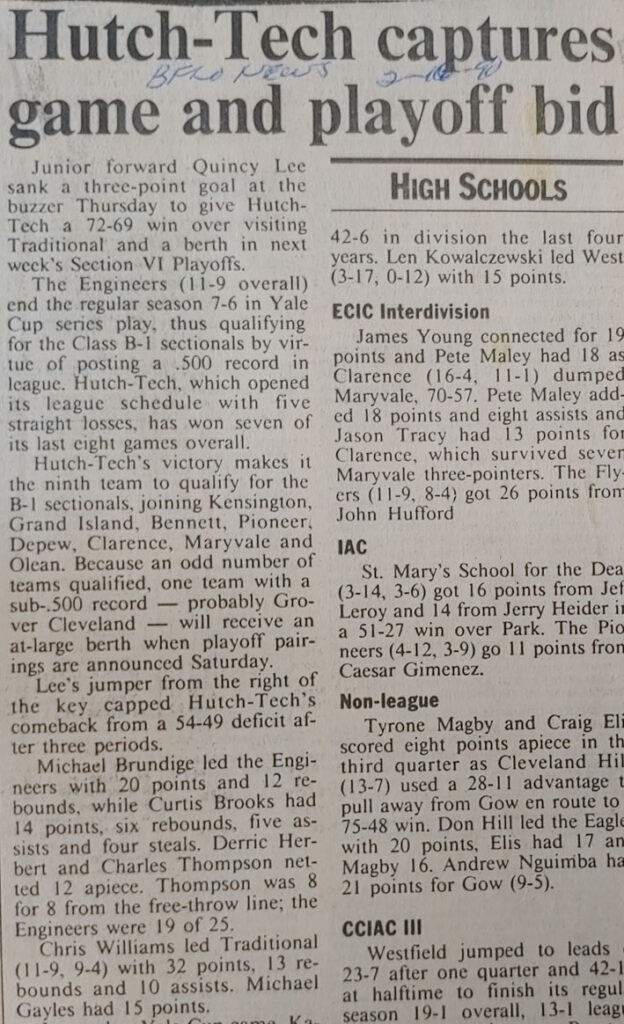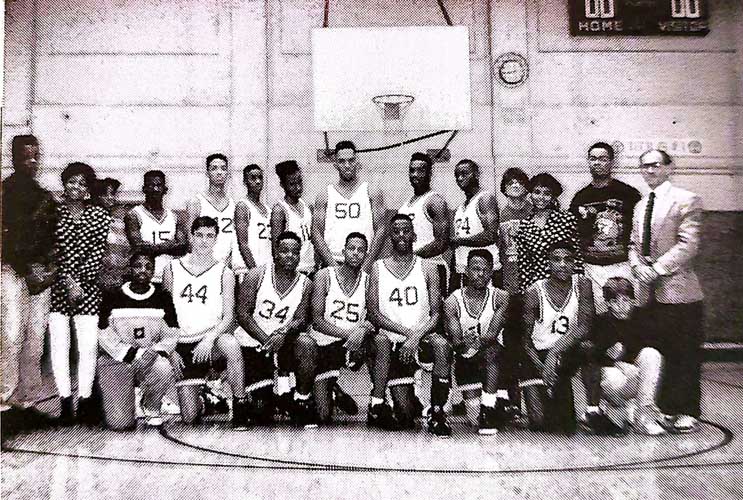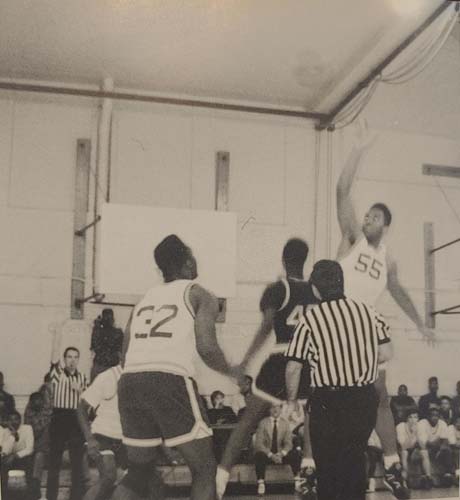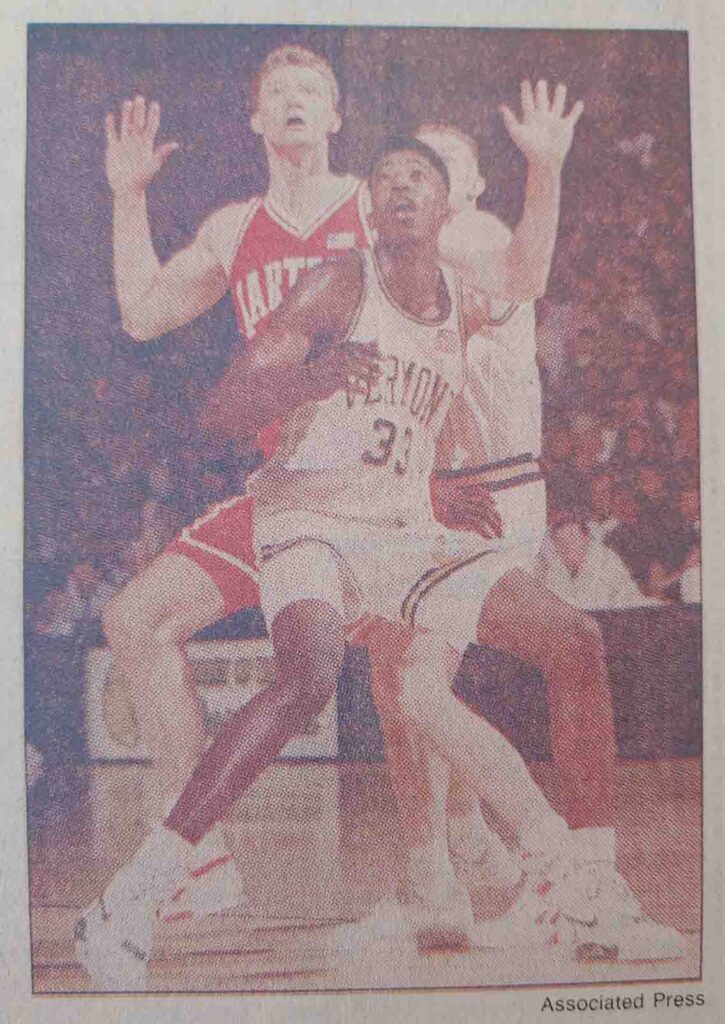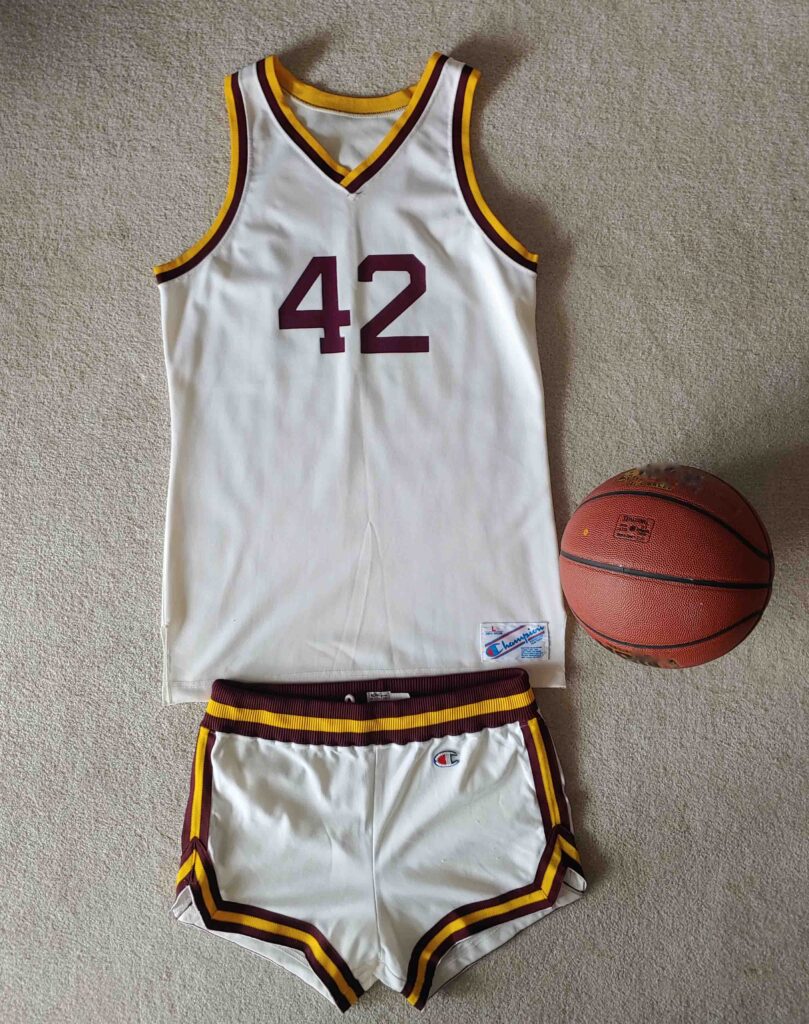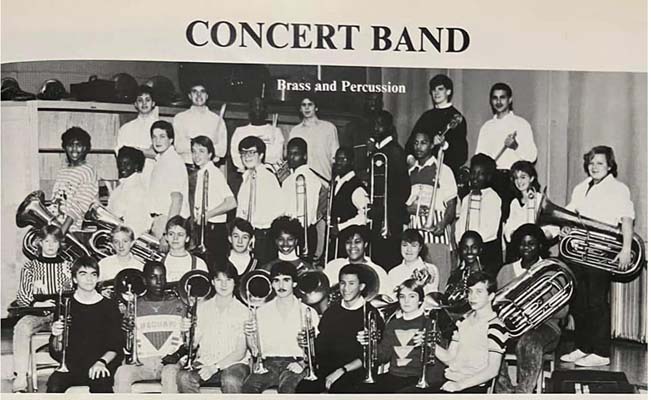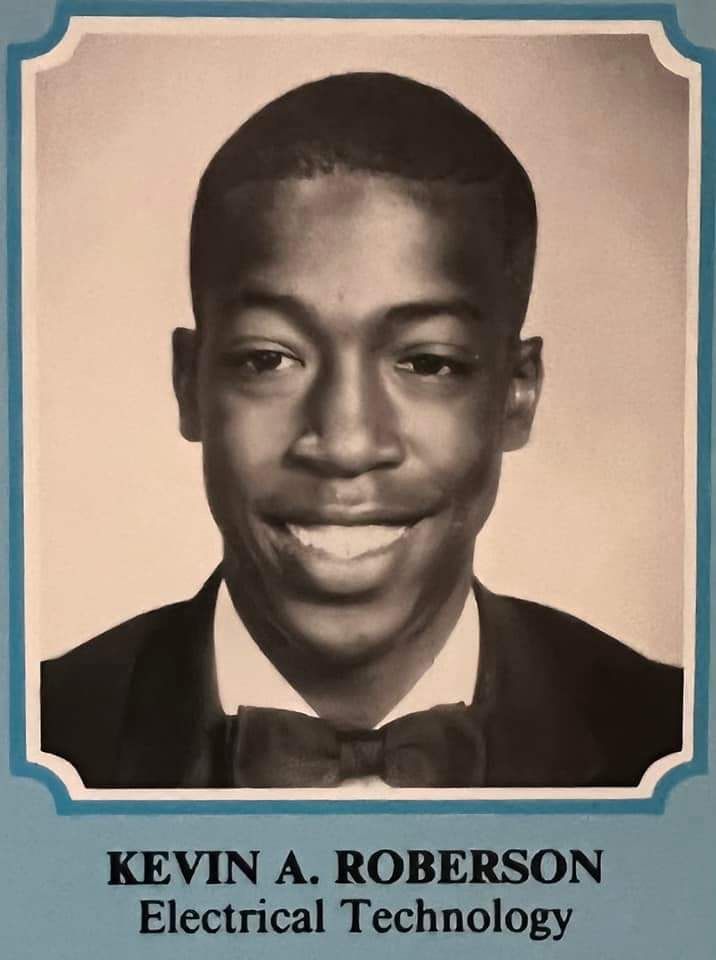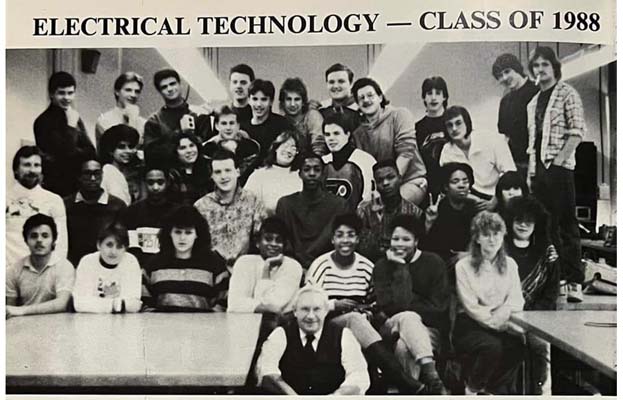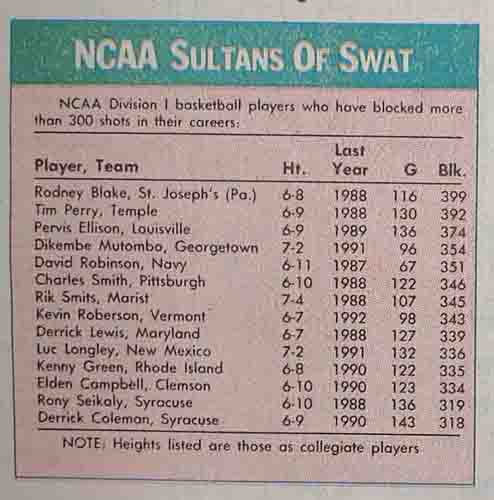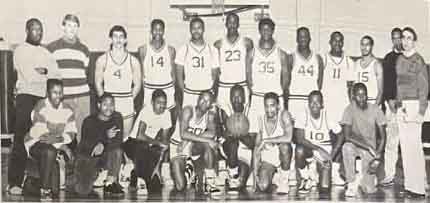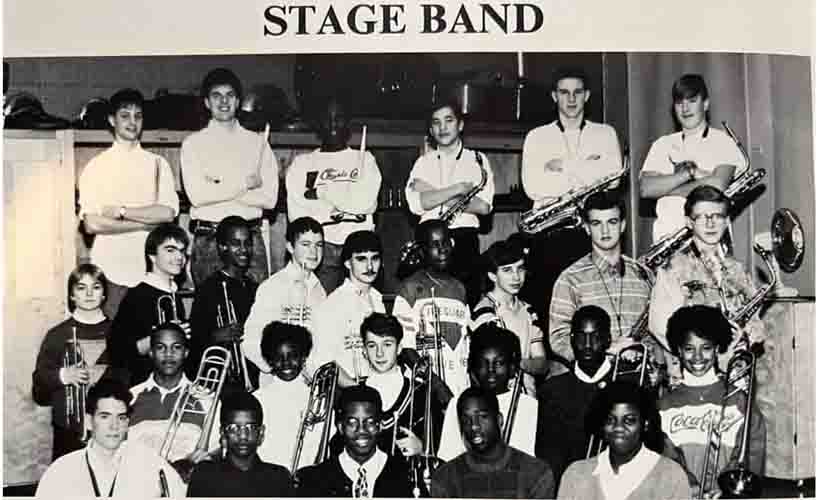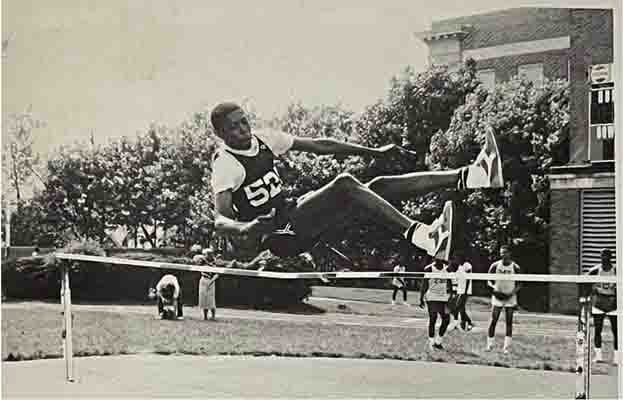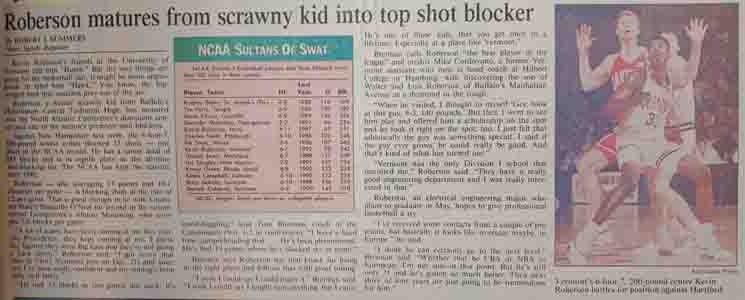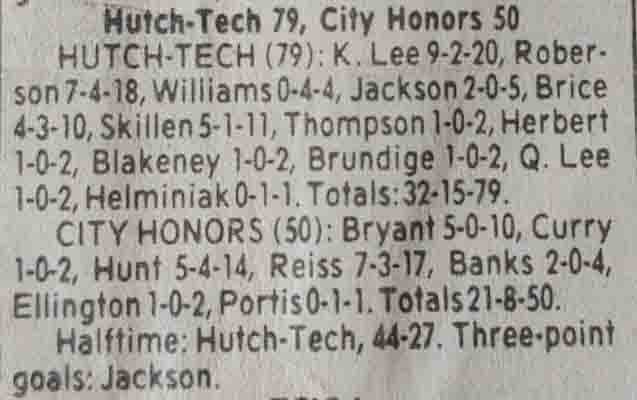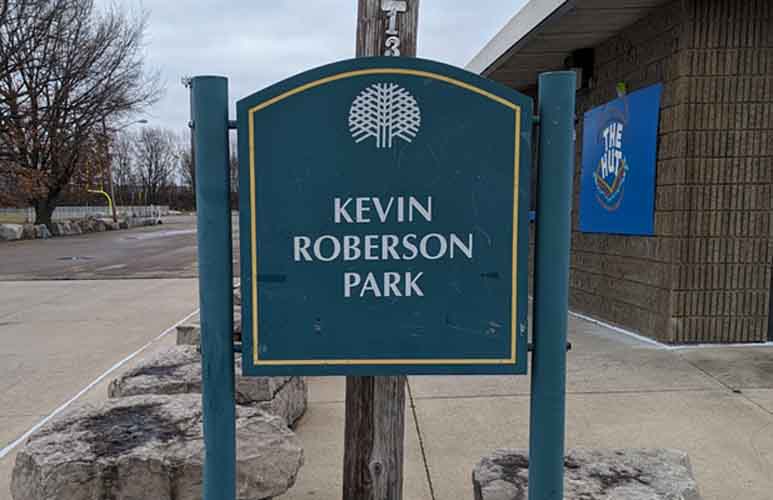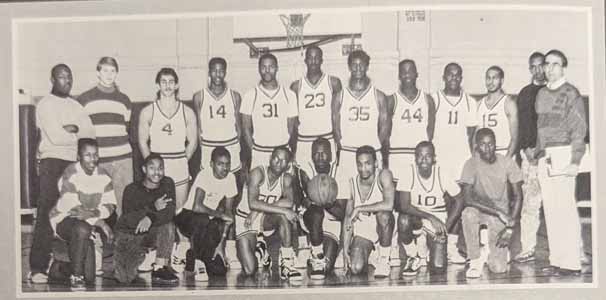
The following are quotes from the many contributors to my two-part book project entitled, The Engineers: A Western New York Basketball Story who were gracious enough to each tell their stories. The contributors will also be acknowledged in the books themselves and these are being shared for promotional purposes. To tell this story the way I wanted to tell it with depth and substance, I couldn’t have done it on my own. Telling this story was a long process and there were times when I felt self-doubt and wondered if this was a big waste of time. Each contributor reminded me in their own way that I was creating something worthwhile and to stay the course. Thank you all again.
Adrian Baugh, Player, Buffalo Traditional School
“I don’t think anybody saw us coming. That year we beat that Riverside team with Ben Rice, Ed Harris, and Shawn Hargrove. I think that was a head turner for everybody because that was a senior-laden team. That team was full of seniors, and you’ve got us coming in with two freshmen, a sophomore and two seniors. I think the freshmen and the sophomores doing the brunt of the work was more of the thing that was turning everybody’s heads. Like WHO are these dudes?”
The 6’6” Adrian Baugh was one of the key cogs in the Jason Rowe– and Damien Foster-led Buffalo Traditional Bulls teams. He was also one of their unsung heroes. The Bulls literally took a stranglehold of the Yale Cup partway through my time as a Hutch-Tech Engineer. In this excerpt from our interview, Adrian described how nobody saw the young Bulls coming in that 1992-93 season. They took several teams by surprise including my Hutch-Tech Boys’ Basketball Team and the Riverside Boys’ Basketball Team were the defending Yale Cup and Class C sectional champions that year.
Carlos Bradberry, Player, LaSalle Senior High School
“I always thought I was a scorer and that was always my mentality, ever since I was younger. In my freshman year, I started on the junior varsity (JV) team and was moved up midway through the season to play on the varsity team. I knew that I wasn’t going to be a bigtime scorer on the varsity level as a freshman or as a sophomore, because we just had so many senior guys. I was a starter, but Coach Monti let you know your role. It’s something that’s lost today. Kids don’t have roles today and everyone thinks they’re a scorer and a star. I had to earn my minutes and if I got an open shot. I was happy because I knew that it was Modie’s, Milo’s, and Duke’s team, and I was there to play my role.”
No. 50 Carlos Bradberry was one of the many great guards in the LaSalle basketball dynasty. He had been a LaSalle Explorer for several years and emerged as the leader of the team as a junior. I first saw him play in a lopsided loss they handed our Hutch-Tech Boys’ Basketball Team in December of 1991. I saw that he was leader of the LaSalle Explorers that 1991-92 season. Carlos had to work his way up gradually into that position like many other players. We often see the result of another person’s hard work through their successes. People seldom see the hard work itself though, and in some instances patience.
*To read the full interview, see parts one and two.
Curtis Brooks, Player, Hutch-Tech High School
“The Randy Smith League was about athleticism and who was the most skilled. It was more one on one, and you never learned the concepts of what you were doing. Basketball is about a team! It’s about knowing your position, knowing your man, knowing how to box out, and knowing who needs help. There’s so much more than just your man on defense! The same thing on the offensive end. It’s something we didn’t really specialize in in Buffalo. It was ball movement on offense under Coach Jones – kind of like how Golden State does it. They’ve got so much movement going on that if you move the ball, eventually it gets somebody out of position defensively and someone ends up with an easier shot. That’s what his structure was. Jones’ offense wasn’t like a pro-offense. It wasn’t about dumping the ball down to one person. It was like that, but it wasn’t designed for that. He never said, ‘Get the ball. I want you to shoot! Shoot! Shoot!’ He’d say, ‘Move the ball if you’re in that area, that’s your shot!’ It wasn’t a star system!”
No. 13 Curtis Brooks was one of the leaders of the 1990-91 Hutch-Tech Boys’ Basketball Team, one of the bases for my story. That season he was one of the leaders of the team in terms of points and assists and hit several big shots for them. I considered him to be the engine that drove that team. I was still in awe of him 20 years later when I interviewed him. Only seeing him play from the sidelines as a freshman, I never got to know him personally. When we talked about those times, he was both humble and wise. Basketball was taught in a very specific way at Hutch-Tech under the leadership of the late Coach Ken Jones. Brooks discussed how many players learned basketball in Buffalo and how Coach Jones’ offenses worked in this excerpt.
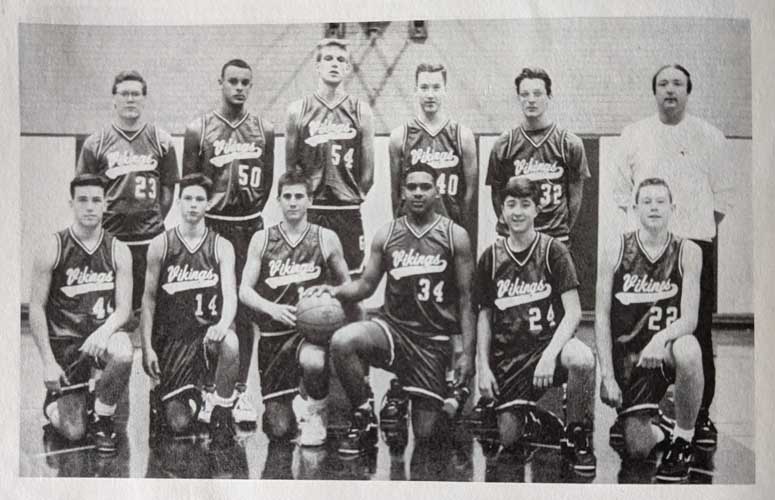
Adonis ‘AD’ Coble, Player, Hutch-Tech High School
“If there was anything I would change about that time, I would have taken the sport a little more seriously. I was a little more gifted than I thought and maybe could have tried to have a future in basketball.”
No. 23 Adonis Coble was the first player I interviewed for this project. He was one of the seniors on the Hutch-Tech Boys’ Basketball Team for the 1991-92 season, my first season. He and the Class of 1992 seniors showed a lot of leadership that year. Interviewing Adonis led me to several other players and Coach Jones himself. He was also a member of the 1990-91 Yale Cup and sectional championship team. The 1991-92 season was a difficult but successful year for the Class of 1992 seniors and juniors who started. Adonis did not start for the Hutch-Tech Boys’ Basketball Team until his senior year and gradually worked his way up on the roster. He reflected on his mentality at the that time and how his trajectory may have been different had he taken basketball more seriously throughout high school.
Ryan Cochrane, Player, Cardinal O’Hara High School
“If you’re one of the fortunate ones to go to the mountain top, you learn something and even if you go through your struggles and you don’t make it to the mountain top, it still teaches you something (the great game of basketball).”
No. 12 for the Cardinal O’Hara Hawks, Ryan Cochrane reached out to me on Facebook after publishing my Jason Rowe interview. Knowing of his legend, I immediately asked to interview him to which he agreed. I hadn’t heard of Cardinal O’Hara, Ryan Cochrane or Calvin Price prior to the 1993-94 season. I became quite familiar with him that year though. He led the Hawks on a magical run through the Monsignor Martin League and in postseason play his junior season. Ryan was one of the fortunate few to make it to the mountain top at that level. He reflected on what the game of basketball teaches you whether you do or don’t make. The game teaches everyone something about the larger game of life.
Samuel ‘Quin’ Coffey, Player, Kensington Senior High School
“It’s interesting that you didn’t see a lot of kids leave Buffalo. There were a lot of talented kids who didn’t leave, like Ritchie (Campbell). The same thing with ‘Stretch’ (Kilroy Jackson). They flew him out to Hawaii. He came back and it was all about going to Hawaii, but he ended up going to Erie County Community College. That was around the time of Proposition 48 (Prop 48). Their grades were rotten, a lot of the top players. Unless you had the will, they didn’t go past junior college.”
I met Coach Quinn Coffey in my first and only year at Brockport State College. He had played at Kensington High School and was a member of the Class of 1992, two years ahead of me. We reconnected on Facebook years later, and I knew that I wanted to interview him for my book project. He loved the game and now coached both boys and girls in the Baltimore area. We talked about the many Yale Cup basketball players who did not leave Buffalo, the highly talented ones in particular. We talked about the highly talented Kilroy Jackson in this instance, but there were many others. Poor academics and academic ineligibility for college were themes that emerged in many of my interviews and in my story in general.
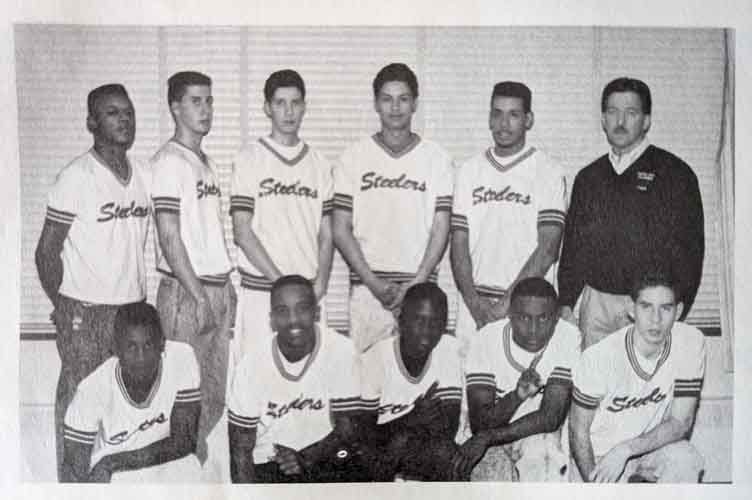
Modie Cox, Player, LaSalle Senior High School
“There was Mike Hamilton, Greg Lewis, Garth Ellis who had a brother Mike Ellis, Tino Scarborough – these were guys who were doing things in the streets, but they would keep us away from certain things – particularly guys who had the opportunity to go on to different places. These were more than just basketball coaches. We were taught just to go, just to get the ball and go. It was foreign in terms of getting into a half court offense. Our mentality was to get it and just run. I was blessed with tremendous quickness and speed, so whenever I got the ball I was able to beat the defense down the court. Basketball teaches you a lesson. You’re playing a game early on, but as you get older you realized, man I was taught a real lesson. There are some things that I learned along the way that I probably never would have gotten without this game. So those were some of the guys who were crucial to my development.”
Of the great guards to play in Head Coach Pat Monti’s LaSalle basketball dynasty, perhaps the greatest guard was Maurice ‘Modie’ Cox. Like many players in Western New York, I only heard of Modie’s legend and never saw him play. Modie was the leader of the LaSalle dynasty between Eric Gore and Michael Starks led 1988 Class B Federation Championship Team and the Carlos Bradberry-led teams of the early 1990s. This excerpt comes from Modie’s visit to my sports YouTube channel Big Discussions76 Sports.
Demoan Daniels, Player, Seneca-Vocational High School
“We played our first game in the sectionals and won by 30. Then Fredonia comes up. They talked about this Mike Heary, Mike Heary, Mike Heary. Whatever! I never heard of him before that night. We played them and we got some bad calls down the stretch. That game was tight. We knew if we beat them, then we would play Lackawanna. They had O’ Tes Alston, Warren Miles, Howard Smith – I used to play in Lackawanna a lot too. We used to go out there and play basketball at night. The score was tied late in the fourth quarter. Ricardo stripped that dude and they called a foul. He ripped him at halfcourt and I swear it was the cleanest rip of the year. It seemed like the referee assumed that it was a foul. He said, ‘You can’t do that without committing a foul.’ We were like, ‘Sure you can!’”
Demoan discussed his final varsity game in this excerpt. Postseason play is where seasons ended for the lucky players, though only a few ultimately hoisted the championship trophies. Demoan Daniels’ final high school game was a matchup with No. 24 Mike Heary and the Fredonia Hillbillies. The winner got a matchup with the Lackawanna Steelers in the Class B-2 sectional final. Demoan’s final game came down the subjective opinion of a referee which was in the favor of their opposition, an everlasting burn many basketball players also know all too well.
Francis Daumen, Coach, Hutch-Tech High School
“So he (Mr. Joseph Gentile) basically strong-armed me into taking the job. At the end of one year I said, ‘Joe, I can’t do it!’ By March I was in the hospital. I thought I was having a heart attack! Well, every adult wonders about their lives when there’s a high level of stress, acid reflux, too much Advil. The doctor says, ‘Listen, whatever it is you’re doing you’ve got to change so I’ll put you on acid reflux medication and whatever.’ Within a few months I was back to normal so I told Joe, I said, ‘I can’t handle it. If Phil (Richardson) wants the job, let him have it!’ So that’s what happened.”
Coach Francis Daumen took over for Coach Jones my senior season at Hutch-Tech High School. I didn’t know how to handle the coaching change and struggled through that year. I don’t think we understood one another during that tumultuous 1993-94 season. When I interviewed him 20 years later, we shared what was happening in each other’s lives and it all made sense. He shared that he did not want the head coaching job though he was highly encouraged to take it. His behavior and demeanor that season reflected a level of angst. This revelation demonstrated how and why decisions are made by administrators for their own reasons, that affect everyone underneath them for better or for worse.
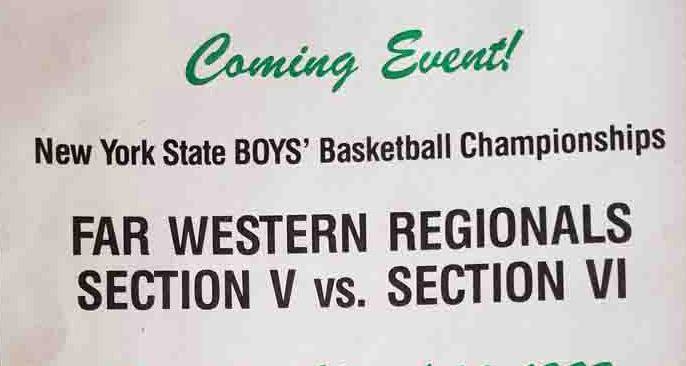
Dewitt Doss, Player, LaSalle Senior High School
“Coach Monti had an article my senior year. He said that I was a mixture of Carlos Bradberry and Tim Winn all rolled into one. I could play good defense and I had a soft touch and could score like Carlos. I could shoot it deep but I just was not as tall as Carlos. As a freshman at Canisius, I just wanted to go, go, go. I had to start understanding pace. Some guys got away with going fast all of the time. You had to understand when to speed up, when to slow down, when to run the offense when you got to college. You had to understand the most important parts – when to get your guys into the right position. In high school you could say, ‘If I want to get a bucket, I’m going to get a bucket.’ In college you couldn’t do that because guys were 6’ 10” and you would get beat up trying to go in there as a 5’ 10” guard all the time. It was learning to pick and choose your spots so you can pull up and shoot a jump shot too.”
Dewitt Doss had to learn to play point guard at the college level like many of the other elite guards from the Western New York high school basketball scene. Jason Rowe discussed his transition in my interview with him. Dewitt Doss discussed his own transition in this excerpt from our interview.
Carlton Ford, Player, Hutch-Tech High School
“Ahhhh man yeah Tate! Tate was like an assistant coach. He was the first person to pull me aside and teach me how to be a point guard. Tate never really focused on running plays, but he taught me how to move and conduct myself on the court as a floor general. He taught me all the tricks you can do, and how you can play the game in a way that refs don’t see. You can pull on the opponent’s jersey and push off for example, but to do it in a way that it looks like incidental contact. He just really showed me how to play the game. It was easier for other players to push me around because of my size, so I had to find ways to use my quickness and be clever on the court. He was really good at showing me that stuff!”
No. 35 Carlton Ford was a two-year teammate on the Hutch-Tech Boys’ Basketball Team. He was a year ahead of me as he was a member of the Class of 1993. We were similar in terms of temperament and personality. Coach Ken Jones never had regular assistant coaches at Hutch-Tech due to budgeting constraints. He did get young assistants from the community to help at times though. One example was Coach Tate, a younger black man whom I missed out on working with on the junior varsity team my freshman year due to academic ineligibility. I don’t think Coach Jones and Coach Tate parted on positive terms but Carlton credited him with teaching him how to play the point guard position.
Damien Foster, Player, Buffalo Traditional School
“Moses Tolbert and those guys – they were nice! In my freshman year, McKinley was in our building, and we lit them up. I couldn’t believe it. I had 37 points that game and I was like, ‘Wow, I gave Fats and Moses 37!’ I’m a freshman and it just starts to go from there. You start building confidence and you start to build a swagger. I don’t want to say it’s arrogance. It’s kind of like arrogance, but it’s confidence as well and you start to build that thing up. And with each game, you’re running into players who are seniors. Do you know what I mean? You’re making a name for yourself because they’re hearing about you!”
Damien Foster and Jason Rowe seemingly burst onto the scene together the 1992-93 season as freshmen. They had prepared for a while, and only those who were unaware of them were astonished by their brilliance. They were unknown to many coaches and players in Western New York, but they and their team knew what they had and what they could do. As more teams became aware of the young Bulls, they gradually became more and more confident. It was like a snowball rolling down a hill getting bigger and bigger.
*To read the full interview, see parts one and two.
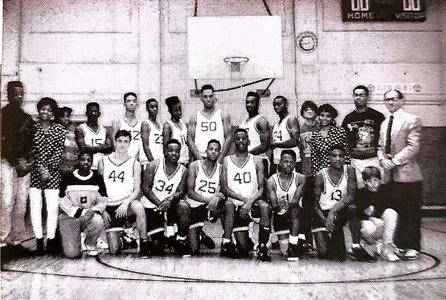
Dion Frasier, Player, Hutch-Tech High School
“He only kept one senior and that was Adrian Bryce who we called ‘Flash’. It was a huge team and Flash was the only senior. He was starting from the ground up and what he saw in me, Mike and Chris is that we were working hard. I had the ugliest shot and I didn’t know what I was doing. He must’ve said that I’ll get these guys when they’re freshman and lean into them and speak into them and by the time they’re seniors – all I can say is that he had us out there hustling.”
Reverend Dion Frasier was a junior on the 1990-91 Yale Cup and Section VI Class B championship teams. No. 24 was a senior my first year on the team, the 1991-92 season. In my book project, I credit Dion and two other seniors for helping keep the 1991-92 team together. We talked about a lot of things in our fun interview. One of the most powerful things though was the roster Coach Ken Jones assembled his first year at Hutch-Tech. Dion described how he was not one of the most talented players at Hutch-Tech as a freshman. Coach Jones had a vision for the future and for the basketball program. Part of that vision involved keeping lesser-talented players whom he could mold for the future.
Jermaine Fuller, Player, Hutch-Tech High School
“Man, it is so funny, the difference in those guys (the 1990-91 seniors), compared to just two years later when we were seniors. I mean, those dudes were men, especially Curt, Chuck, and Pep (Skillon). Their physiques were college ready. They played on the football team as well, making them equally ready for the basketball season. Yes, they were leaders. They were very mature. I think about how silly I used to be. Even when I was a senior. I was very immature, but maybe that’s also because I was only 16 years old as a senior?
No. 30 Jermaine Fuller and I were teammates for the 1991-92 and the 1992-93 seasons. I didn’t interview him verbally as I did most of the other players. He graciously answered the questions I shared with him electronically though. Jermaine humbly observed and shared that the leadership component within our basketball program changed from when he first earned a roster spot to when he ascended into a position of leadership himself as a senior. He was gifted academically and was technically a younger upperclassman. A key theme of The Engineers: A Western New York Basketball Story is leadership and the critical role it plays in teams and organizations becoming successful and continuing to be successful.
Carlos James Gant, Player, the City Honors School
“I think it was a combination of a bunch of things. Romeo McKinney and Coach Fran played a major role in us developing. I can put enough on what Romeo McKinney did because what he did netted results and it helps you believe and buy in. When you implement a press and this press is putting it on people, and you’re getting seven to eight steals – when the system is working for you, you start to believe in it. I mentioned the growth spurt with Larry, he grew eight inches. We all filled out, got stronger and were jumping higher. One kid I have to tip my hat to was Eric Gadley. His game really developed to where Eric could really start shooting outside where he was a slasher at first. Our chemistry was better. We got physically stronger and committed to getting better. And we didn’t want to lose anymore. I think Coach McKinney and Coach Fran gave us the blueprint to where we believed we were the better team walking into the gym.”
The City Honors Boys’ Basketball Team improved every year I was in high school. The Centaurs matured into a competitive team by the time the core of their team were seniors. One of them was No. 32 Carlos James Gant. Carlos attributed the City Honors Boys’ Basketball Teams’ turnaround and ascension to several things, but one of the main contributors was legendary Coach Romeo McKinney teaching them how to run full court presses on defense. McKinney was a legendary coach at South Park who temporarily fell out of favor in the high school basketball scene due to the Christian Laettner-Nichols fight at the Aud. He was still highly respected and revered years later though.
George Gayles, Player, Bennett High School
“Veronica was probably more like Cardinal (Buffalo Traditional), probably closer to that. I’m saying he was closer to it. He did teach, but I don’t remember getting any fundamentals from him. It was just playing. Let me use the correct word, I played at basketball. I never was at the point where I was successful enough to know that I was good enough to play against other people. It didn’t come to me until I got to college. My theory of the game came to me in college, and it grew exponentially. Even in gym class, he would just roll the ball out and let guys play. He may have talked about that with other students, but he didn’t do it with me.”
I met George Gayles at SUNY Brockport my freshman year. George played for the Bennett Tigers under Coach Larry Veronica. George described himself as a ‘project’ in high school like me at Hutch-Tech. He wanted to play but was undeveloped and learned where he could. In our interview, he described how Coach Veronica saw that he wanted to play and had a willingness to learn. George further compared Coach Veronica to Coach Joe Cardinal at Buffalo Traditional who was said to have been successful for the talent he inherited and not for his acumen as a coach. George Gayles likewise discussed how he didn’t really learn the fundamentals of basketball until after he graduated from high school. Basketball as a craft was taught differently at each of the 14 Yale Cup schools. The coach you had largely determined your experience and development as a player.
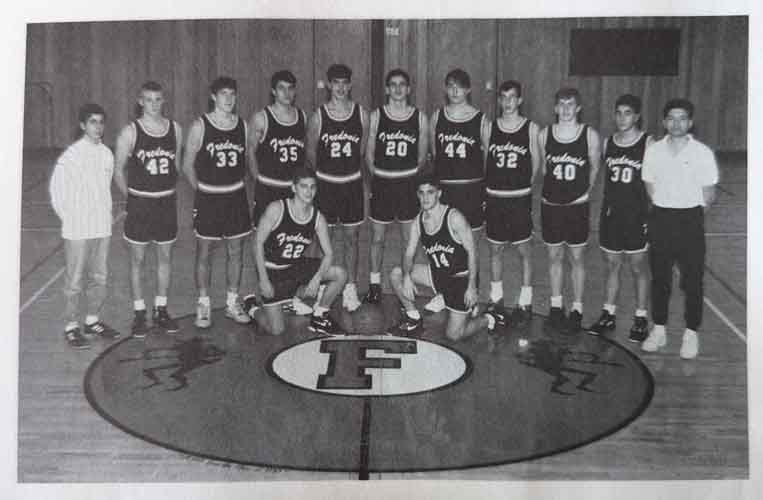
Anthony Harris, Player, Burgard Vocational High School
“I mean there were some bad people back then. There were a couple who were really good back then like Bob Lanier. Bennett just ran over everybody, and East had some really good people too. Bennet’s team was so strong, all five guys should’ve made All-High, but they couldn’t. They couldn’t but Bennett’s starting five was All-High, so some players had to play second team. As a matter of fact, Bennett went undefeated that year, until Emerson beat them. It was the second last game of the season. They had Bob Lanier, Kenny Macklin, and a brotha named ‘Space Ghost’. I can’t even think of his real name. And then they had Andrew Payton. They had some brothas. I don’t know how far they got in college, but Buffalo sent a lot of players on scholarships back then.”
A part of my story is discovering key information about family by accident and after it’s needed. I didn’t discover that my Uncle Anthony Harris was himself an accomplished basketball player back in his day. He played alongside Eugene Roberson at Burgard and even matched up with Bennett’s Bob Lanier during those years. During our interview, we discussed the Yale Cup and Buffalo basketball from years past. Uncle Tony discussed seeing and playing against the legendary Bob Lanier and his at Bennett High School. Most of us only heard of Bob Lanier’s legend in the 1990s and never saw him play. It was a very different landscape than what we experienced. The same is true for the players today.
Ed Harris, Player, Riverside High School
“Yeah I looked forward to those games, Turner/Carroll with those guys. Delwyn Rhines, Gerald Brown and Shondell Dupree – they had a squad and we played them and won. We won that first game of the year against them because we were 5-0 going into that Buffalo Traditional game. I didn’t know about Jason and them at that time. I can’t say that I looked forward to playing them that year, but I looked forward to playing against Jeff Muszynski and the St. Joe’s boys that year. That was definitely a game that I wanted to play.”
The 1991-92 Riverside Frontiersman won both the Yale Cup title and Section VI Class C championships. One of their leaders was the versatile Edmund Harris. Like a lot of teams, the Frontiersman ascent was gradual. Part of the fun of playing basketball in our era at that time was knowing the other players and teams. Once you knew who the other top players and teams were, you looked forward to playing them. Ed Harris described looking forward to playing the Turner/Carroll and St. Joe’s teams in this excerpt.
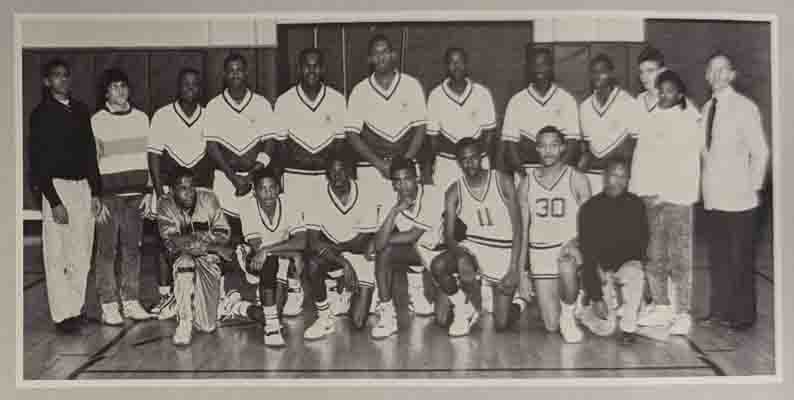
Frankie Harris, Player, Hutch-Tech High School
“It wasn’t too structured (the Hutch-Tech Boys’ Basketball Team). It wasn’t. You could get – there was personal stuff that you had to learn. As I got into college it helped me out a lot. It taught you how to play in a structure. It taught you how to play with other teammates. There’s stuff I try to teach, because I coach Amateur Athletic Union (AAU) off and on and all of that and I still use the same stuff. The good teams, use Golden State as an example, yes they might have the best players but they’re good because they play good together. They play in a system, and they play together. That’s what I remember him teaching us (Coach Jones), because it was tough because there were games where I might have a shot and he told me to shoot the ball, but I would wait so that we could get a better shot.”
My essay discussing the 1990-91 Hutch-Tech Boys’ Basketball Team and their magical season acknowledged two groups of players. I acknowledged those who took the court that season. I also acknowledged those who were instrumental in building the program but graduated before the championship years. That happens with many championship teams. One of the players was Frankie Harris whom I met at Coach Jones’ funeral service. We discussed a lot of aspects of Coach Ken Jones’ tenure as the Head Coach of the boys’ basketball team. One of the hallmarks of Coach Jones’ program was its structure. Some players embraced it and played within it while others resisted it and felt restricted by it. It literally depended on your point of view.
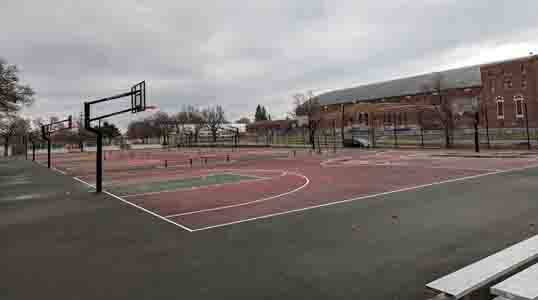
Keith Hearon, Player, Hutch-Tech High School
“You know more when you look back and you say it was more about teaching them a lesson. It was trying to mold them to know that you can’t just do what you want to do. If you’re going to lead then you have to be model leaders. You’ve got to lead by example. Just because you’re the loudest and the most expressive, that doesn’t mean that you’re a leader. So, for my role, I was going to do my job regardless, from the top I know where directions come from. I know my role and I know how to interweave with everybody and so I was fine after a while. I think it’s something they had to learn.”
Keith Hearon was a teammate on the Hutch-Tech Boys’ Basketball Team for the 1991-92 and the 1992-93 seasons. A member of the Class of 1993, he was a year ahead of me. ‘Stretch’ as Coach Jones referred to him my junior season was mature and even keeled personality-wise. He was a wiry 6’5” and played center for our team and was very reliable. There were numerous adversities encountered between Coach Jones and his players over the years. Some came to a head during the 1992-93 season, his final year. Successfully running a basketball program or any kind of structure involves leadership. The more senior people are often expected to step up and provide an example for junior members of the team. Issues often ensue when that doesn’t happen.
Derrick Herbert, Player, Hutch-Tech High School
“I think at that time I was too naive. I didn’t even know to be disappointed or to not want to do this anymore. We’re losing. This is terrible. Let’s not do this anymore. I don’t know what Pep and them said, but I didn’t get the idea that those core guys had thought that this is trash. I think we all noticed that, because we were basketball players that said, ‘Yo he knows what he’s talking about. If we do what he says, we might have something.’ And I don’t know if that’s how those guys felt but that’s just the impression that I got. Like I didn’t feel like the Bad News Bears after a loss. I don’t want to sound cheesy but there was still some hope. That next year, things definitely started clicking, once we bought in. It was hard buying in, with that getting in shape stuff, having to run and do morning workouts and do this, that and the third. We weren’t really feeling all of that. Initially it was like, ‘Yo what is this?’ But my impression is that once we bought into it the following year, the sky was the limit then.”
“You have to talk to D-Herb!” Jerrold ‘Pep’ Skillon told me that I needed to talk to a senior from the 1989-90 Hutch-Tech Boys’ Basketball Team at Coach Jones’ funeral service. I had only seen Derrick Herbert in pictures like the other members of his class. I acknowledged them in my essay dedicated to the 1990-91 Hutch-Tech Boys’ Basketball Team. They helped lay the groundwork for the 1990-91 championship season. In our discussion, Derrick talked about the culture change Coach Ken Jones brought to the Hutch-Tech Boys’ Basketball Team. He and his teammates witnessed it first-hand and had to buy into what was being sold to them. They wanted to improve and start winning games, but they had never done it the way Coach Jones was leading them.
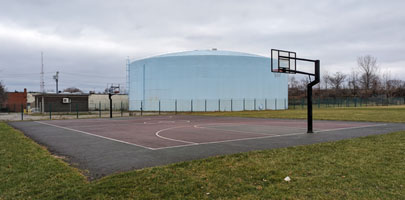
Reggie Hokes, Player, Hutch-Tech High School
“The 1993 Seneca game was going to be my last game. I went to Coach Jones that morning and told him if I didn’t play that I was going to turn in my uniform! I told him, ‘I work hard every day just like everybody else. After this game, I’m done!’ I practiced hard and I played hard, and I didn’t really think it was fair that I wasn’t getting any time. My whole sophomore year, I basically sat on the bench. I mean you have people cheering to get me in the game and I sat on the bench. That game, he started me. I felt like I was better than all of his guards anyway. Do I have to start? No, but I felt like I should’ve been getting some ‘burn’!”
I first saw No. 22 Reggie Hokes play basketball at the William-Emslie YMCA. He was a pass first point guard, and I was amazed at his ability to assist the ball like Magic Johnson in the open court. I enjoyed playing with him as he always looked for you in the open court on fast breaks. He came to Hutch-Tech during a bit of a youth movement where underclassmen fought to play right away. This was in large part inspired by the University of Michigan’s Fab Five. This new youth movement clashed with the culture Coach Jones established for Hutch-Tech basketball which rewarded senior players who had been in the program for a number of years. It was a dilemma many coaches faced at that time. Play my veterans who have been in the program? Or play the young highly talented kids?
Earl Holmes, Player, Hutch-Tech High School
“It taught me that nothing in life comes easy (the great game of basketball). You have to work for everything you want. Even the things you need, you have to work for them. It also taught me – because I was an only child for most of my life to never be afraid to ask for help when you need it. I always thought it was a sign of weakness to ask for help. In everything, whenever you need it, never be afraid to ask for help. You’ll be surprised because nine times out of ten, you’ll get it.”
Earl Holmes was an outspoken multi-sport athlete from the Hutch-Tech’s highly talented Class of 1995 (football and basketball). We were teammates on the 1993-94 basketball boys’ basketball team. Earl came off as very cocky, opinionated and pompous in those days and you didn’t know when verbal bullets were going to come flying your way. Later in life after our days on the Hutch-Tech Boys’ Basketball Team and playing both college and semi-pro football, Earl shared very wise and profound perspectives on life and the world. The ability to ask for help would have surely helped all of us out on our early athletic journeys and life in general.
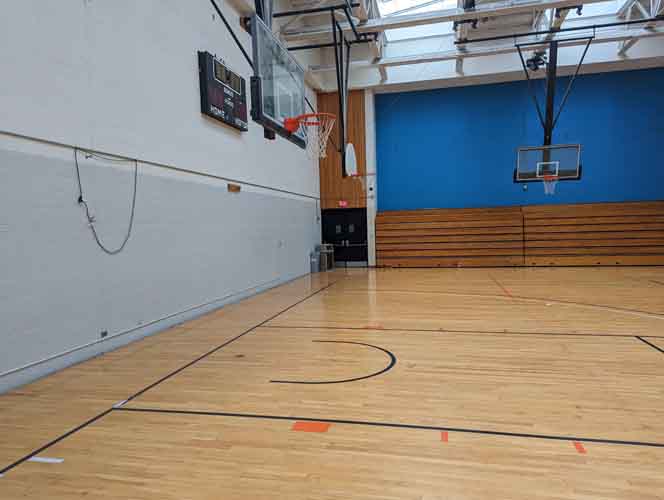
Ronald Jennings, Player, Campus West and Turner/Carroll High School
“Towards the end of my junior year, that’s when I made the decision to walk away from sports to focus on ministry and preaching. That’s something in retrospect I’ve thought about. I was still a young person growing up and I didn’t see how I could do both of them effectively at the time. It was going to take time and commitment going into my senior year. I maintained a 4.0 and was valedictorian in high school. I didn’t see how I could do all of them. By default, sports lost that draw. In retrospect, I wish I had someone who encouraged me to keep playing.”
Reverend Ronald Jennings was my first ever point guard in an organized basketball setting. We were teammates for two years on the Campus West/College Learning Laboratory Bengals Boys’ Basketball Team in middle school. I looked up No. 21 and was in awe of him. Ronald went off to the now closed Turner/Carroll High School while the rest went off to city or suburban high schools. Turner/Carroll was the one mostly black private school in Western New York. I kept tabs on No. 21 a little bit once I got to Hutch-Tech. Early on he played both football and basketball for the Chargers. I didn’t hear anything about his athletic exploits after awhile. Rumors about him going into the church and becoming devout in his faith emerged. It was something that was foreign to me though I was raised in the church as well. I saw some guys at Hutch-Tech get disillusioned and leave sports because they weren’t getting playing time or to get jobs, but who walked away because of religion and spirituality?
Brandon Jones, Player, Hutch-Tech High School
“I think there were moments when I was a freshman (at Buff State) where I said, ‘I can’t play here because all he’s doing is yelling at me. All he’s doing is yelling. He had a good way of ripping you apart – ripping you – I remember I missed a dunk at a home game and he benched me for the entire game. It was a Friday-Saturday and right after the game, he got done ripping me apart in the locker room. He held me back and he said, ‘I’m going right back to you tomorrow. You’re going to be in the starting lineup tomorrow.’ And I played my ass off the next day, played my ass off, like one of my best games ever, the next day and so he had a good way of bringing you back. He had good assistants who were the player-coach types who said, ‘Don’t listen to him, he’s going to ride you. Good job. But I remember as a freshman saying, ‘I can’t do this. I want to play basketball. This is not basketball. All he’s doing is yelling at me.’”
I didn’t overlap with Brandon Jones in terms of playing on the Hutch-Tech Boys’ Basketball Team. Brandon was a versatile front court player who could put the ball on the floor and shoot it from long-range. He became one of the featured players under Coach Philip Richardson who took over for Coach Ken Jones and Coach Francis Daumen. Brandon further went on to play for the legendary Coach Dick Bihr at Buffalo State College. Brandon interestingly described having to get used to getting yelled at by the fiery Coach Bihr. A lot of coaches are in fact yellers and they have to learn to embrace and endure that type of coaching/leadership style. Not every player can deal with it and many buckle under this style.
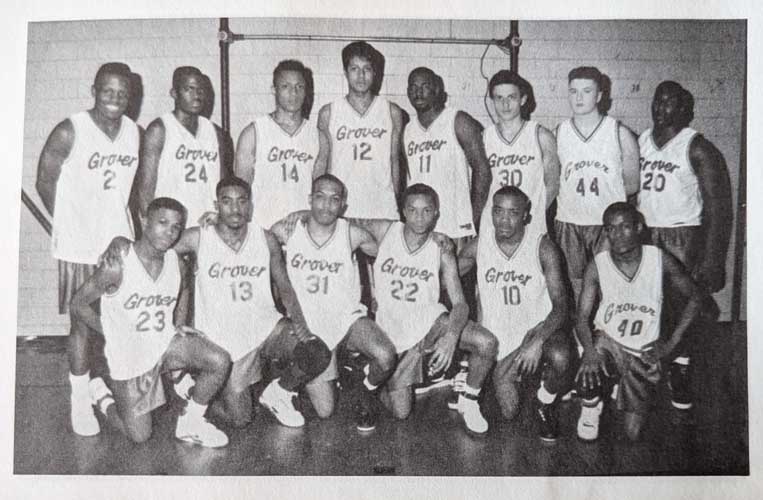
Quincy Lee, Player, Hutch-Tech High School
“I think it was a bunch of us. It was me, Pep, Mike Brundige, Curt Brooks, and Derrick Herbert. I think we all just sat there and decided that we weren’t going to be embarrassed anymore. Buffalo Traditional embarrassed us our sophomore year and we got beat pretty bad by them early in our junior year and we decided that we weren’t going to get embarrassed like that. All of us had lives outside of school and you got to different parties and people remember. We decided we weren’t going to be embarrassed like that. We were going to run the plays, but when it came time, we were going to go for ours. No one really went for theirs because they knew they were going to get pulled out. But we were going to go for ours. If we’re going to lose then we’re going to go out shooting. We didn’t shoot that much as a team because no one wanted to miss and get pulled out of the game. We were already losing but we decided that we were going to go down shooting and that’s when things kind of changed.”
The late No. 11 Quincy Lee was one of the seniors on the 1990-91 Hutch-Tech Boys’ Basketball Team. Coincidentally he also attended Campus West but was four years ahead of me. He agreed to be interviewed after reaching out to him on Facebook. Quincy opened up the door for me to interview several other Engineers in addition to telling me his own story. Quincy was a part of the rebuild of the Hutch-Tech Boys’ Basketball Team. He was on the roster with the late Kevin Roberson as a freshman under the leadership of Coach Francis Shea. There was a learning curve and a transition when Coach Ken Jones took over the program in the 1988-89 school year. He and his teammates had to learn how to play within Coach Jones’ structure system and also to play their own games in a way that would make the team successful.
Pat Monti, Coach, LaSalle Senior High School
“When I’d go to these clinics, coaches would ask, ‘Coach, how do you do this year in and year out?’ I’d say, ‘Fellas, you have what they want.’ They’d look at me and ask, ‘What are you talking about?’ I’d say, ‘You’ve got the ball. If they’re not doing it the way you script it, then you take the ball away from them! You sit them down!’ See a lot of coaches are afraid to sit their players down or discipline them because they don’t think that they can win. But if your team has bought into the team concept, you can win. I’ve had players go down to injury in games we weren’t supposed to win, and we won because somebody else stepped up.”
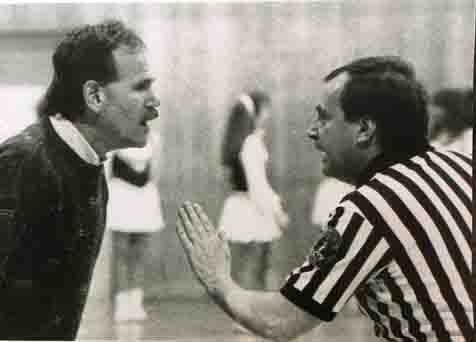
My first-time seeing Coach Pat Monti’s LaSalle Explorers play was in a lopsided loss they handed our Hutch-Tech team. It was in the 1991 Festival of Lights Tournament in their gym. They were in the middle of a 10-year run in which they dominated the Section VI Class A playoff bracket. They were our area’s regular Class A representative in the Far West Regional game with the Rochester area champion. Many other coaches and spectators wondered how the LaSalle Explorers kept winning year after year. Coach Monti described the pillars of his program being, ‘Structure, discipline and no nonsense,’ in our interview. He was a brilliant basketball mind, but he demanded cooperation and obedience from his players and accepted nothing less.
*To read the full interview, see parts one, two and three.
Roderick ‘Spanky’ Peoples, Player, Hutch-Tech High School
“One of the sayings I remember most from Coach Jones was, ‘Sometimes you have to go where you don’t want to go to get where you want to be.’”
Roderick ‘Spanky’ Peoples was a first-year player along with me and others on the 1991-92 Hutch-Tech Boys’ Basketball Team. He played football as well and had quite the motor, bringing a fearlessness and intensity to our team. Anecdotes, life quotes and words of wisdom were hallmarks of the basketball program Coach Ken Jones ran at Hutch-Tech High School. Most players remember some of the quotes Coach Jones shared every day. One of the most powerful was, “You have to go where you don’t want to go, to get to where you want to go!” In the context of basketball, it describes moving without the ball in such a way to free yourself up from your defender to receive the ball. It was similar in the life context describing making a move or taking a direction you initially don’t want to take. That move will subsequently set you up for the outcome you want.
Brian Reith, Player, Hamburg High School
“You asked how Hamburg was as a program. We were competitive for a while, and we were right up there competing for our division championship with Williamsville North or Jamestown. The teams in our conference were close to us, like Frontier, Orchard Park, West Seneca but it was really Williamsville North who I remember being our biggest adversary. We were always slugging it out with them for the division championship. One of my favorite competitors played for Williamsville North, Jonathan Parks. I loved the way they played basketball. Thinking about how they played basketball, it was a lot of fun for us. Thinking back for us, when we started our season, what kind of expectations did we have? Were we planning to go to the states? States wasn’t something we talked about a whole lot, but instead it was about how we would compete in our division. And when it came to our teams that I had the chance to play for, junior year when I was a starter for the team, we were led by a guy named Rob Lang and led us. He was the guy, no question about it, we had the ultimate conclusion that year of losing before the finals to LaSalle.”
Brian Reith was the only player from one of the Erie County Interscholastic Conferences (ECICs) that I interviewed. He reached out to me after reading my Carlos Bradberry interview. He and his Hamburg Bulldogs were quite familiar with the LaSalle Explorers in those days due to their many sectional matchups. It was big to talk to him because I wanted to know what it was like to play in one of the suburban conferences. I had driven past Hamburg numerous times but had never stopped there. Brian talked about the expectations for the Hamburg Boys’ Basketball Team in this excerpt. I learned throughout my interviews that the expectation for every basketball program/team was different. The LaSalle Explorers in Niagara Falls expected to make the state tournament in Glens Falls every year. Qualifying for sectional play was a major accomplishment for some teams. Winning the division was a major win for other teams. The preseason expectations and goals had huge impacts on the outcome of the season. This is also true for the game of life.
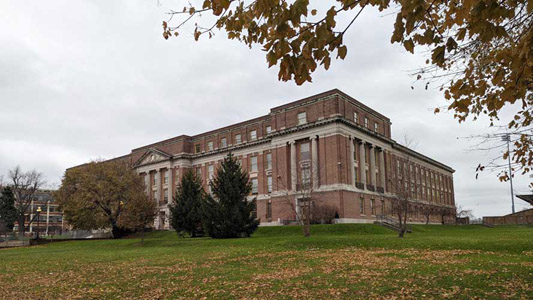
Phillip Richardson, Player, Bennett High School, and Coach, Hutch-Tech High School
“‘No. I’m not the coach, but this is what I would do if I was coaching. We would do a bunch of different things. We would concentrate on defense more than anything. If you take what I say and you apply it to games and your coach doesn’t want you to do it, then you have to stop doing it. Do what you are told to do and no more is my advice to you,’ I said. I wasn’t looking over his shoulder (Coach Francis Daumen). Seeing him in the hall, I would ask him, ‘Hey coach, how is the team going?’ I put all that stuff behind me because I knew that I had a hard enough job being a Physical Education teacher at Tech. I was at the top school in the city and I couldn’t let anything interfere with me staying there for however long I was going to stay there.”
A central theme to my project The Engineers is benefiting from the knowledge sets within your family (and not). Coach Phil Richardson is a second cousin on my mother’s side. I didn’t spend a lot of time around him in my youth prior to high school due to life circumstances. I thus didn’t learn about his vast sports history until he arrived at Hutch-Tech in the fall of 1993. My short basketball journey at Hutch-Tech was a tumultuous one involving a coaching change. I wanted Coach Richardson to be our coach for the boys’ basketball team when he arrived at Hutch-Tech in the fall of 1994. The administration had plans for him and for us. He still advised some of us from the sidelines while not interfering with our Head Coach Francis Daumen who had taken the reins from Coach Ken Jones.
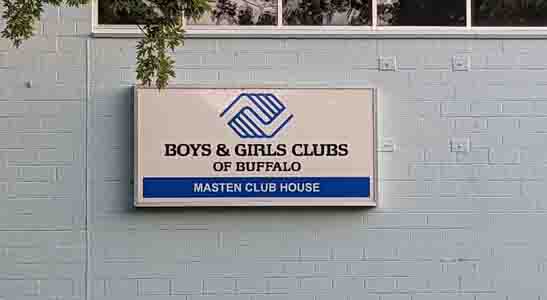
Jason Rowe, Player, Buffalo Traditional School
“I was in the school so I was familiar with Andre and Jeff already. They were instrumental in our success my freshman year. Jeff was our shooter, and Andre was like our ‘Draymond Green’ – he was undersized, but he could do a little bit of everything. They were very good leaders. What also helped us was that a lot of us played together outside of Buffalo Traditional. We were always at the Boys Club – myself, Damien, Damone White, who unfortunately has passed away – we were always together playing. It’s kind of like we weren’t surprised because we knew how each other played and our mentality. No one else really knew. We knew how to compete, we just didn’t know we were going to knock off so many teams and make a name for ourselves. We just wanted to win.”
I already conducted several interviews by the time I got to talk to Bishop Timon’s Head Basketball Coach Jason Rowe. I told him that his interview was ‘the big one’ as it lent credibility to what I was doing. We still laugh about it today. He, Damien Foster and the Buffalo Traditional Bulls became a force to be reckoned with in Western New York, across the state and beyond. The success of those Jason Rowe- and Damien Foster-led Buffalo Traditional Bulls teams was also dependent upon the play of their teammates. They were the faces of those teams and the stars from their freshman to senior years. All championship teams need role players as well to compliment their stars and fill in the other statistical and non-statistical areas. The Buffalo Traditional Bulls were no different.
*To read the full interview, see parts one and two.
Bill Russell, Coach, Riverside High School
“I watched the good local high school teams play – teams where I guess I had the most respect for their style of play. It really wouldn’t do much good to go see some teams playing the playground style or the run and gun style. I can go to the westside for entertainment right? There were a few teams that I liked to watch play because I thought I could learn something. I went to some coaching clinics but the other thing I did which I thought was really helpful more than anything was go watch college practices. I liked to watch them early in the season, like the first two weeks of practice because that’s where the coaches would be doing most of their teaching. They spent most of their time teaching that time of the year, and then once the season started, a lot of practice time was taken up by game planning, preparation and strategies and things they were working on to play their next opponent.”
One of my final interviews for The Engineers was with Coach Bill Russell who guided the Riverside Boys Basketball Team when I was a player at Hutch-Tech. I didn’t know much about the Frontiersman besides their clinching the Yale Cup title by beating us my sophomore year. Coach Russell turned out to be a student of the game and a basketball junkie like Coach Jones. The level and degree of coaching varied depending upon the Yale Cup School you played at. Coach Russell was one of the coaches who treated the game as a craft for himself and his players as opposed to something that was done for four months into winter or at playgrounds. He took the game seriously and worked to give his players the best possible experience under his leadership.
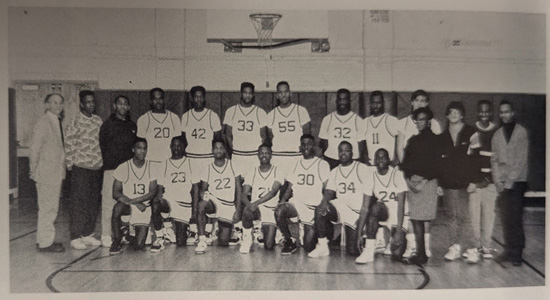
Jermaine ‘J-Bird’ Skillon, Player, Hutch-Tech High School
“Jones would never let us run in practice. Quincy hated Jones. Like I said, Jones would only go 6-7 players deep. If Quincy was in foul trouble, he’d put Dion in. The previous year, we’d be down 14-15. Jones would say, ‘Lee. Go in there and shoot the threes!’ It was no respect. It was the ‘Bench Mob’. It was me, Q-Lee and Mike Brundige at the end of the bench. Like I said the game was always out of reach. When Pep got hurt, Q-Lee got some more run. Jones wanted to have five seniors starting. The first year he only had ‘Flash’ starting (Adrian Brice). The next year he had Ed Leonard, Jerome, Frankie, D-Herb and Mike B (Brundige) but they didn’t all start. Jones and Q-Lee clashed. He used to put Q-Lee in when the game was so far out of reach. So now he lets Q-Lee shoot when he wouldn’t let him shoot any other time. So now he blames Jones for what happened with him and basketball. No Jones player ever got – no he didn’t pound the table for anyone. How did we go 13-0, 22-3 and nobody made All-Western New York? Jones didn’t pound the table for nobody. Jones had his own agenda in my mind.”
Jermaine ‘J-Bird’ Skillon played on the Hutch-Tech Boys’ Basketball Team for three years. He was a member of the Class of 1992 like Reverend Dion Frasier (discussed above). He’s the younger brother of Jerrold ‘Pep’ Skillon discussed below. He played football and basketball and had lots of game on the basketball court. Many of his players look back on him with affection and fondness but J-Bird and some teammates were no fan of the late Coach Ken Jones. Hearing J-Bird’s stories was valuable for me as a writer for both balance and perspective. The Hutch-Tech Boys’ Basketball Team looked like a utopia from the outside. It wasn’t for all the players though it wasn’t an ideal environment for everyone involved for any number of reasons. This was an interesting and surprising finding for me. As sports are a microcosm of life, it was reflective of the game of life in general and our world at large.
Jerrold ‘Pep’ Skillon, Player, Hutch-Tech High School
“To this day, it’s probably still the most fun I’ve had playing basketball. No question. No question, because when it got to the point where we were ranked, there was a swagger to us like, ‘Yeah. We are pretty good.’ It wasn’t overconfidence but it was, ‘We can hang with ya’ll now. We’re not the laughingstock we were two years ago. Ya’ll can’t clown us now. So trust me, I’m proud of that year. I’m disappointed by how it ended but nah I wouldn’t change too much. It’s funny. The inter-dynamics of everything is funny you know in hindsight looking back at the backstory in hindsight, but nah I wouldn’t trade that experience for nothing. Like I said, that’s still the most fun I had playing basketball. That year was the most fun by far.”
Arguably the most fun of all the interviews I conducted was that of No. 32 Jerrold ‘Pep’ Skillon. Pep was a key piece of the 1990-91 Yale Cup and Class B sectional championship teams. He was a two-sport athlete (football and basketball) like the above-mentioned J-Bird Skillon. Many people look back at high school and say that it was just high school. I witnessed the 1990-91 Hutch-Tech Boys’ Basketball Team from a distance and wanted to be like them. Pep shared the magic of that team in our discussion. It was the most fun he had playing the game and also turning the team around. He experienced the transition from being one of the least talented teams in the Yale Cup to becoming the league champion his senior season.
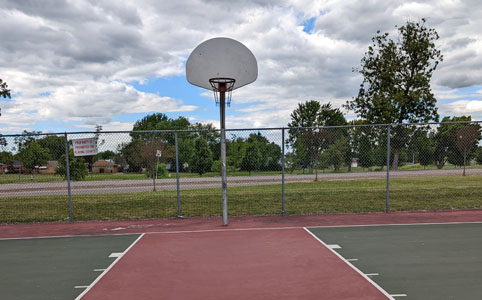
Christain J. Souter, Player, Hutch-Tech High School
“If you show up every day and you work hard, you are going to get some opportunities. They may not come that week, that month, that year even – but if you show up to Coach Jones’ practices every morning and in the afternoon, and you don’t miss a single day –. I know that I wasn’t the most physically gifted player on that team – probably far from it. But I know that he saw value in showing up to work. During practices it was, ‘You guard Chuck Thompson! You guard Pep! You guard Derrick Herbert – you guard these guys!’ I’m 120 pounds, and soaking wet as a freshman, and I’ve got these almost men pushing me around, but I came back every day, didn’t complain, and worked and worked and worked! I think that translates into school and college – you show up every day and work on the classes you need to work on – when you go to your job, you show up every day and you be accountable – that was a big lesson.”
No. 44 Chris Souter was a member of the Class of 1992 at Hutch-Tech High School. He was one of the seniors my sophomore year on the Hutch-Tech Boys’ Basketball Team. In opinion, he was part of the glue that held our 1991-92 team together. In our interview he had many insightful things to say about his time playing under Coach Ken Jones. Coach Jones did not keep all of the most talented players when he arrived at Hutch-Tech in the 1988-89 school year. He had his eyes set on building a program with a culture and with players who he would pour his philosophies into. This was one of the controversial parts of his tenure. Chris Souter reflected on this in our discussion. He wasn’t the most talented player that fall of 1988, but Coach Jones saw something in him as a person, a player and as a part of the program going forward.
Darris Thomas, Player, Niagara Falls Senior High School
“Yes, absolutely that was our best year (the 1993-94 season). We went 20-5 and we won the sectionals and were two games away from Glens Falls. We were looking at the LaSalle and thinking, “Man we could be –,” and the paper had LaSalle going to Glens Falls. But we lost to – who did we lose to? But yes, we went 20-5. We had a great year, and I was All-Western New York and All-League. My junior year it was my team. My sophomore year it was actually my team too, but my junior year it was undoubtedly my team. We did really well. Vazanni let me be really vocal with the guys, and the guys were really close – we were all from the same area. He let me talk more in huddles – he would give me instructions and say, ‘Hey Darris go tell him –,’ and it began to connect us that year. Rasheen Moore. We called him ‘More-Lib’ – he was the two-guard, but he was just more so the dirty man, the defense and the charge taker. People were more so understanding their roles that year. That’s what made us really prevail.”
My research for The Engineers: A Western New York Basketball Story revealed that Niagara Falls was a breeding ground for great basketball players. It turned out that LaSalle and Niagara Falls Senior High Schools had a Duke vs North Carolina-type of rivalry. LaSalle dominated the rivalry but the Niagara Falls Power Cats were still uber-talented every year nonetheless. The one Power Cat I got to talk to was guard Darris Thomas. The Power Cats went on their own magical run during his junior season. That year it was his team and everyone bought into their roles. Players knowing their roles was another theme that came up during my 43 interviews. It is a critical part of winning in the great game of basketball and in life in general.
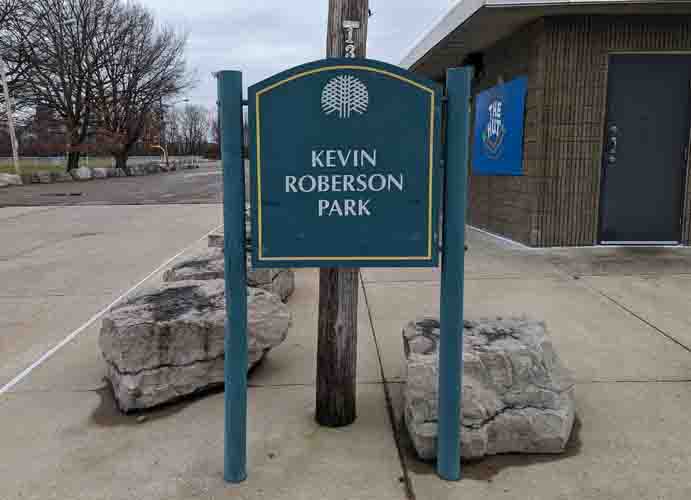
Charles ‘Chuck’ Thompson, Player, Hutch-Tech High School
“It was a good feeling. We had already put the time in. We knew that we could do it, and we just needed to apply it. That year we just applied it, and it just happened you know what I’m saying? Everybody was trying to do better. Everybody was trying to get as many rebounds and score as many points. Like I said, the most important thing was winning, winning the games and we won. We used everything we learned from our sophomore year, our junior year and took a couple of losses – winning is just what we did. We didn’t know how to lose.”
The 6’5” No. 55 Chuck Thompson was the center for the 1990-91 Hutch-Tech Boys’ Basketball Team. He also attended Campus West for grade school and was a two-sport guy (football and basketball). He led the 1990-91 Engineers in rebounding and described himself as the “black hole” as shot the ball most times when he received it near the basket. Chuck played on the Hutch-Tech Boys’ Basketball Team each of his four years at the school. He was there before Coach Ken Jones took the team over and he was a part of the rebuild of the program and the ascent. Chuck described his and his teammate’s path towards learning how to win and then their razor sharp focus on winning in his senior year.
Dennis Wilson, Player, Turner/Carroll High School and Riverside High School
“Russ was a good coach. I think a lot of times we didn’t respect Russ as much as we should’ve because he was just so nice to us. Russ was such a caring guy. He cared for you tremendously. He took us to practice and to leagues. He’d give us as his players the shirt off his back if need be. I think a lot of times when people give you, give you, give you, you don’t respect it and some of the stuff he was teaching, we just didn’t respect it enough. You respected it once you got to college. I know players who went to college and said, ‘Damn you know this is what Russ was saying!’ So, I mean he was a great coach. Oh absolutely. He knew basketball. He was a great historian. We went over to his house on winter breaks. We got pizza and we’d watch old clips of Cliff and Ritchie and everything. I don’t know if he was the head coach with Cliff, but I think he was on the staff.”
Dennis Wilson played at both Turner/Carroll and Riverside High Schools. As such, he experienced high school basketball in both a private school and a public school. In this excerpt from our interview, Dennis gave roses to his coach at Riverside High School, Bill Russell. You would not think that Coach Russell had an astute basketball mind when looking at him. I learned firsthand however when I interviewed him that he was in fact a student of the game similar to Coach Ken Jones. Coach Russell also ate, breathed and completely immersed himself in the great game of basketball. He attended numerous clinics and wanted to hold the most detailed practices possible for the Frontiersman. Dennis Wilson got to something else significant in this excerpt which is appreciating your coaches and teachers when you have them which a lot of kids don’t do. They don’t realize what they had until afterwards.
Tim Winn, Player, LaSalle Senior High School
“For me it was one thing playing in that program – it taught you how to be a young man, but the success of the program made me feel like I could do anything. I don’t know losing, so I approach everything the same way I approach those games back then. I expected to go to Glens Falls back then, so when I’m in a job interview now, I expect to win. I’m currently at Wells-Fargo on the technology side and I expect to win. Playing for LaSalle, I’ve carried myself a certain way all my life because of that experience. It’s confidence, it’s borderline cockiness sometimes – I always believe that if I approach it with the right work ethic – then it’s game over. It doesn’t matter what sport it is. It doesn’t matter what realm of life it is, if I approach it with the same approach I used on the court at LaSalle, I’m going to win. Period. And you can ask any of the teammates that I’ve had. It’s just something that’s in you. It just did something to us as kids – we just always believe that we’re going to be alright.”
There were many great guards and players in the Niagara Falls LaSalle Basketball Dynasty of the 1980s and the 1990s. No. 11 Tim Winn is arguably the greatest guard of them all. Winn experienced great successes each of his four years going to the state tournament in Glens Falls each of his years in high school. The competitive fire of the LaSalle program is arguably what set it apart from all the other programs in Section VI. Tim discussed taking that competitive fire from his days as an Explorer and applying it throughout the rest of his life. He was a consummate winner and felt like he could win at anything. This also came out during my follow up interview with him on my sports YouTube channel, Big Discussions76 Sports.
*To read the full interview, see parts one and two.
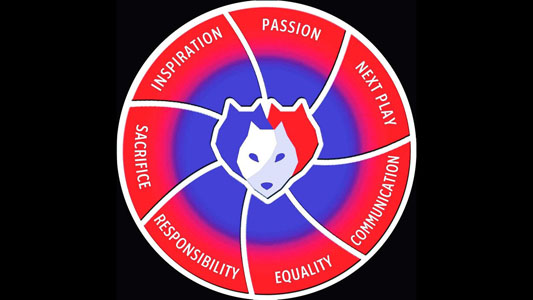
Ronald Wolfs, Coach, The Netherlands
“My brothers were very important to me. They taught me the game of basketball and a love of the game – everything that’s a part of the game and that’s life. You have to win and lose. You have to deal with your emotions, be physically prepared, getting hurt – it’s all a part of life really if you’re a basketball player. And I think that’s also a part of my philosophy, “Basketball is life like Ken Jones said. The most important part of my basketball philosophy is to make better human beings out of basketball players. I think that’s the main reason why I still coach the game today. I’m still busy with the kids I coach today to make them into better human beings. We use this basketball game as a thing they love and forget about their problems and concentrate on the game. I love the game and concentrate and just compete.”
Coach Ronald Wolfs met Coach Ken Jones as a youngster at an early age and his life was forever changed like many of us at Hutch-Tech High School. Coach Wolfs was from the Netherlands and was initially introduced to the game by his older brothers like a lot of players. He met Coach Jones at his camp in upstate New York. The two became lifelong friends. Basketball is more than a game for some people and is also both a way of life and a craft. Coach Wolfs discussed this in our interview. He wanted to teach the game that he loved, but he also wanted to teach his players how to win in the game of life.
*To watch the full interview, see parts one and two.
The Pictures Used In This Offering
The pictures used in this offering come from several different sources. Some came from the late Coach Ken Jones. This project wouldn’t have been possible without the extensive records he kept. Some pictures came from Coach Pat Monti. Some came from Laura Lama, a classmate from Hutch-Tech high school who kept her yearbooks. Damien Foster and Jason Rowe shared some. Some came from my own records. It wasn’t clear what pictures to use and as you can see the final lineup is an assortment of pictures of players, box scores and other visuals. Some are location shots from Western New York.
Just like the players and coaches I interviewed, the pictures are a snapshot of that era in the Western New York high school basketball scene. I think this is appropriate because my book project, The Engineers: A Western New York Basketball Story is just one story in the entire fabric of that time. Likewise, during that time, I looked around and saw other players and teams either excelling or going through the same struggles I experienced (or some mixture of the two) during my own unique journey.
The pictures in this post are of some of the teams from Western New York in that era. The thumbnail image for this piece is of the 1987-88 Hutch-Tech Engineers who were led by No. 23 Kevin Roberson, an important figure in this project. Kevin was pivotal in terms of motivating several of the core players from the 1990-91 Engineers to attend Hutch-Tech High School, even before Coach Ken Jones took the reigns of the boys’ basketball team in the fall of 1988.
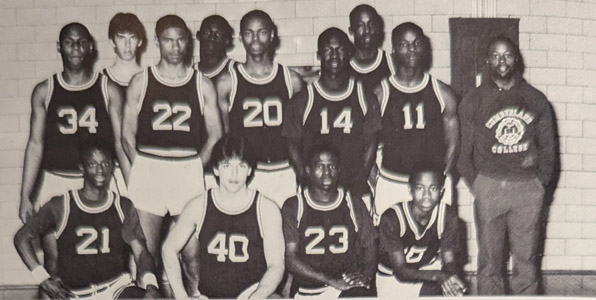
Closing Thoughts
The opening excerpt/quote for this piece comes from the late Coach Ken Jones himself. Of the many quotes Coach Jones told us as his players, I did not recall this one personally. One of his sons shared it with me early in 2019 at his memorial service. That was just before the Covid-19 pandemic in 2020. I think he used it to market the Ken Jones Basketball Camp. It’s a simple saying but it’s quite true.
Thank you again to the other coaches, players and teammates who shared your stories with me. This project would not have been possible without you. This was a long process, and with each interview I gained the strength to keep going and resolved within myself that I was doing the right thing.
More Related Content
I’ve created other promotional/teaser pieces for The Engineers: A Western New York Basketball Story, both via print and video as I journey through the final steps of completing the book. I created a page here on Big Words Authors for the purpose of giving a background of the book and grouping all the promotional pieces such as this in one place for interested readers. On my first blogging platform, the Big Words Blog Site, there are interviews with some the most accomplished Section VI players from my era including Jason Rowe, Tim Winn, Carlos Bradberry and Damien Foster. I also interviewed legendary LaSalle Head Basketball Coach Pat Monti. Finally, there are several other basketball-related essays related to my book project. If you liked this piece, please share it on your social media and leave a comment beneath this piece.
The Big Words LLC Newsletter
For the next phase of my writing journey, I’m starting a monthly newsletter for my writing and video content creation company, the Big Words LLC. In it, I plan to share inspirational words, pieces from this blog and my first blog, and select videos from my four YouTube channels. Finally, I will share updates for my book project The Engineers: A Western New York Basketball Story. Your personal information and privacy will be protected. Click this link and register using the sign-up button at the bottom of the announcement. If there is an issue with the previously described link, you can also email me at bwllcnl@gmail.com . Best Regards.
